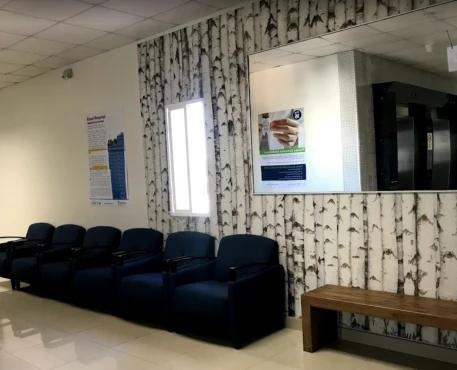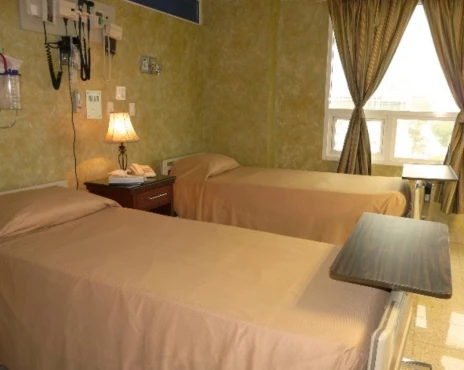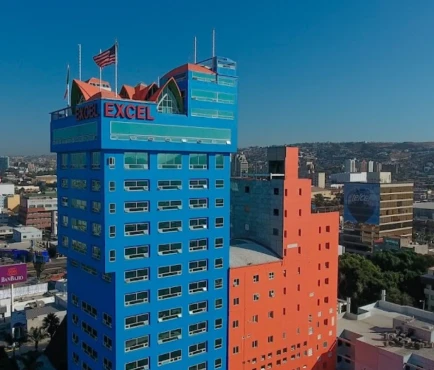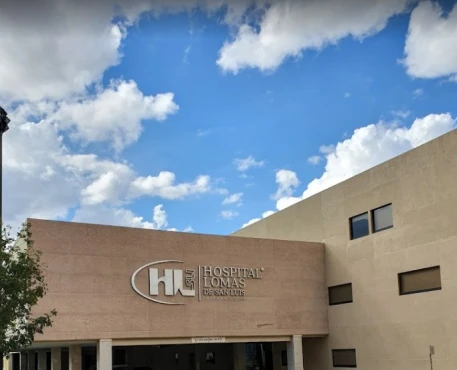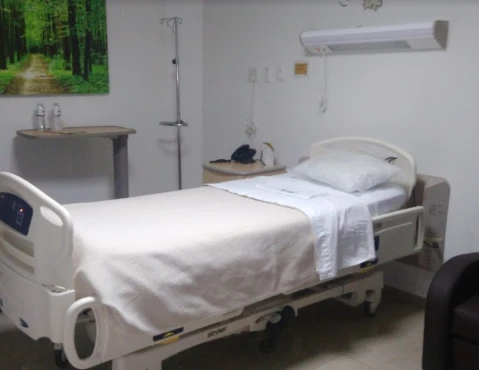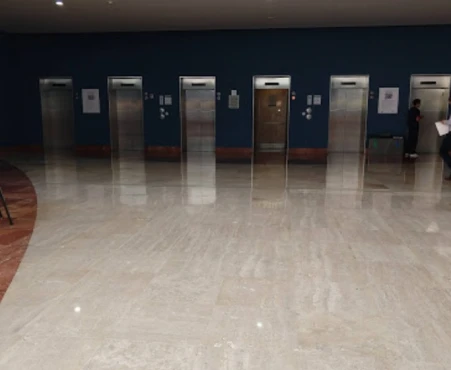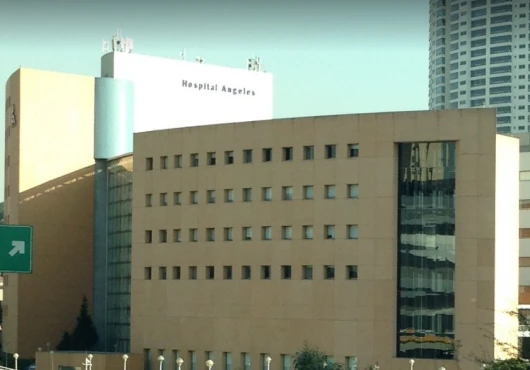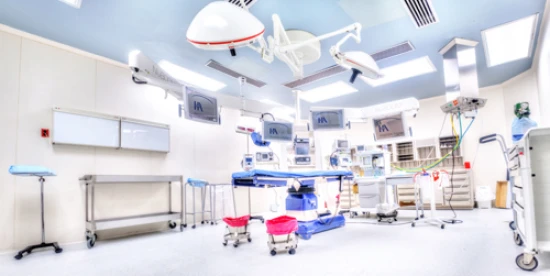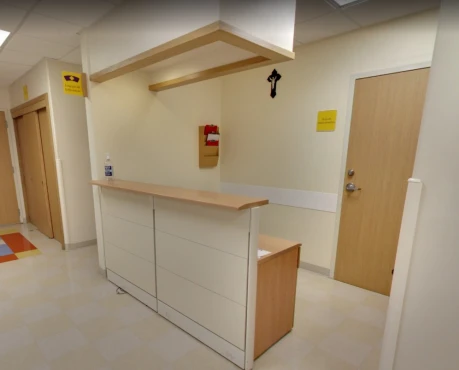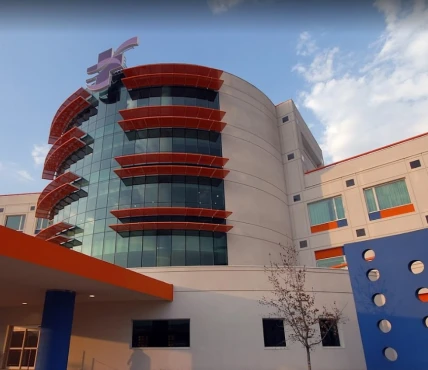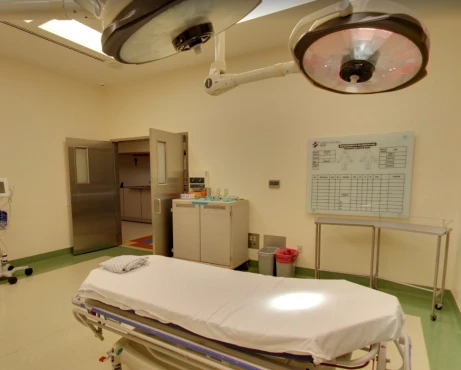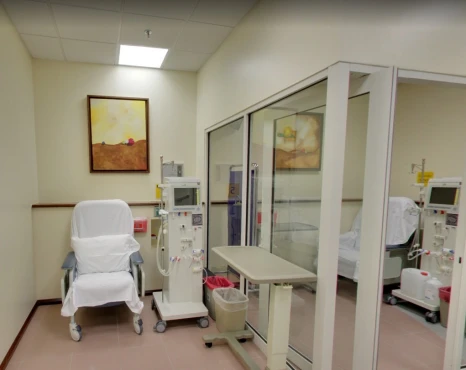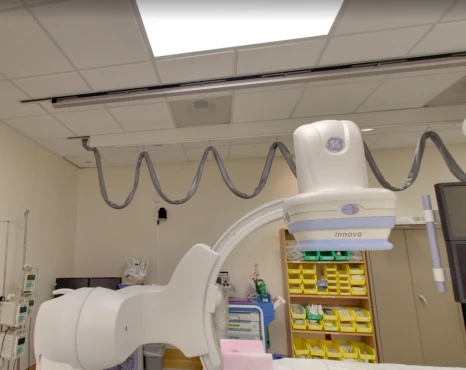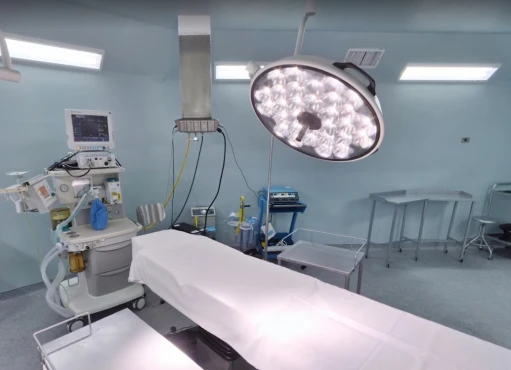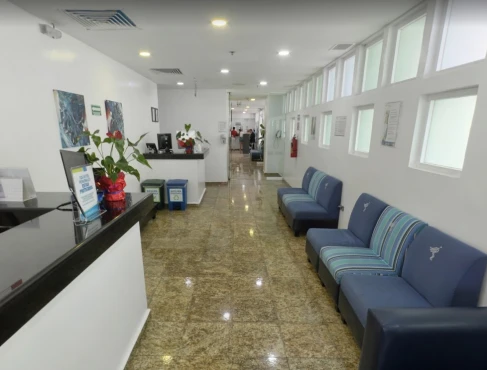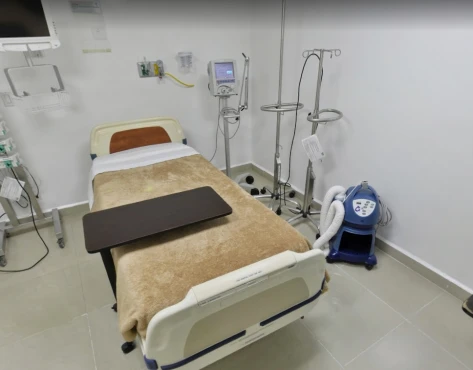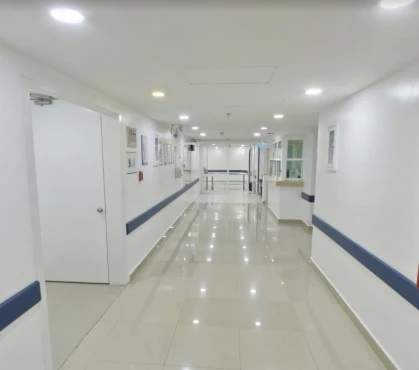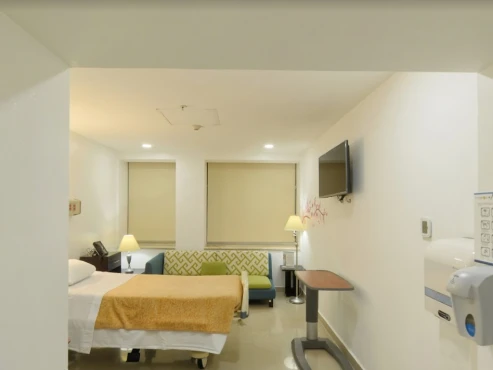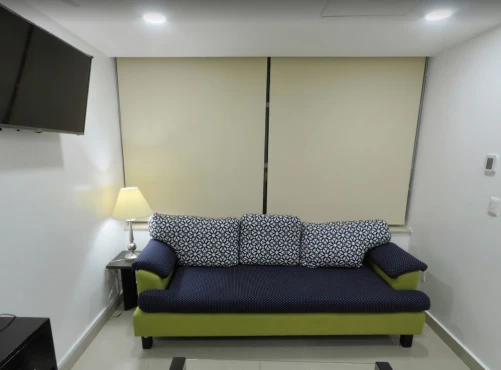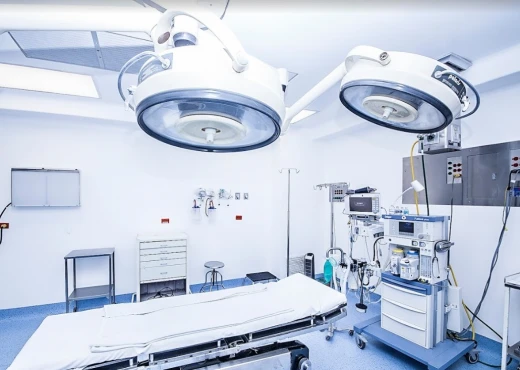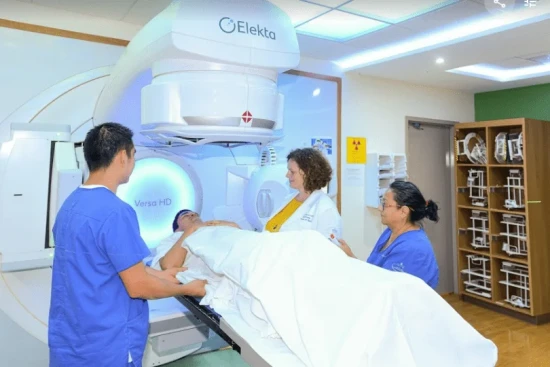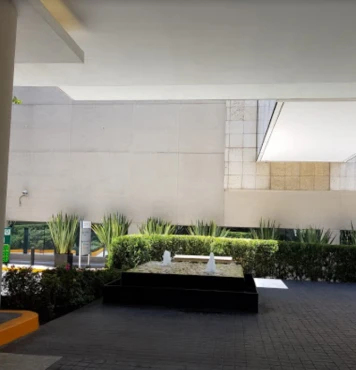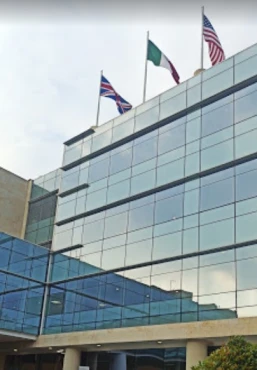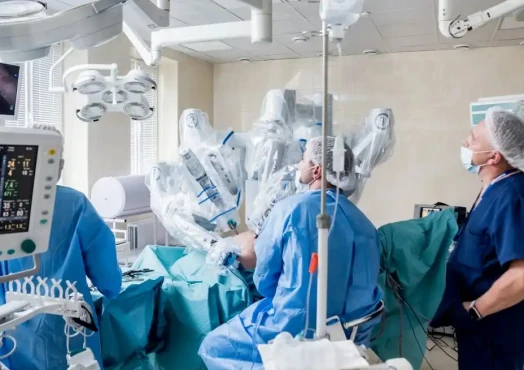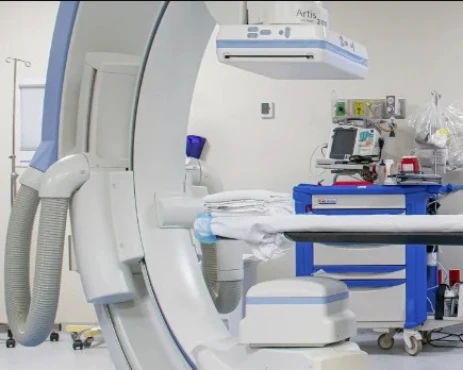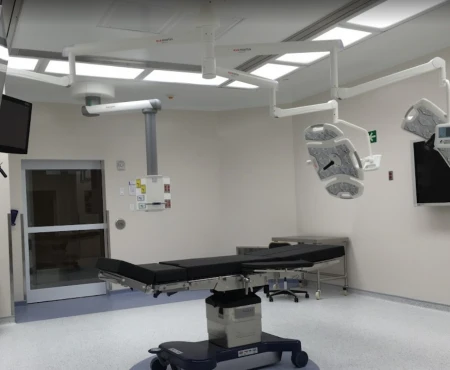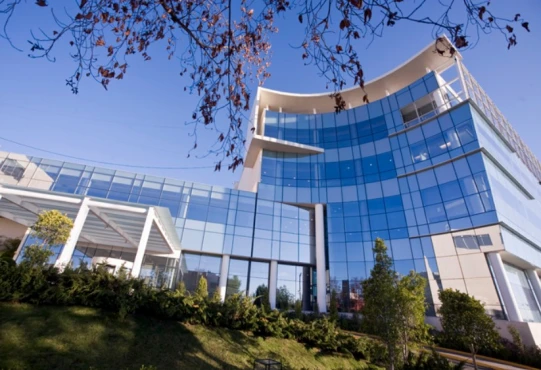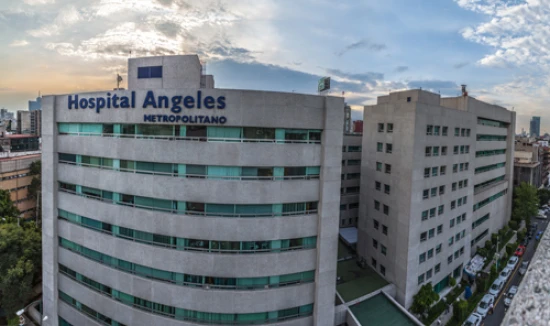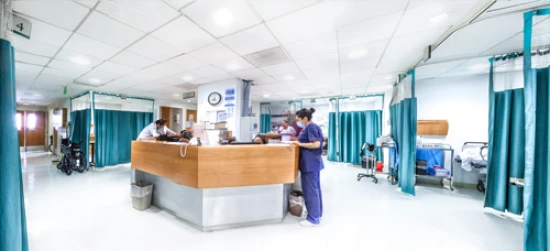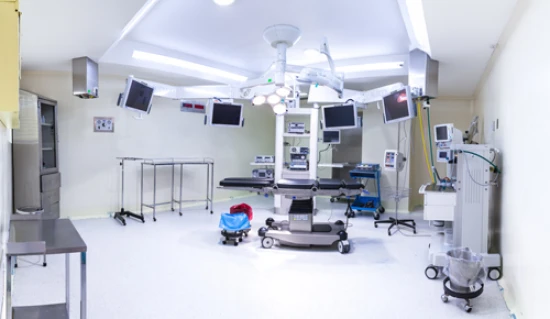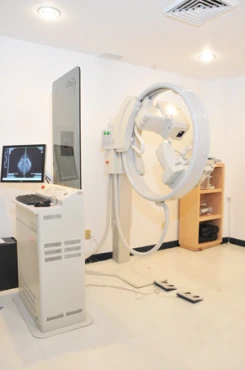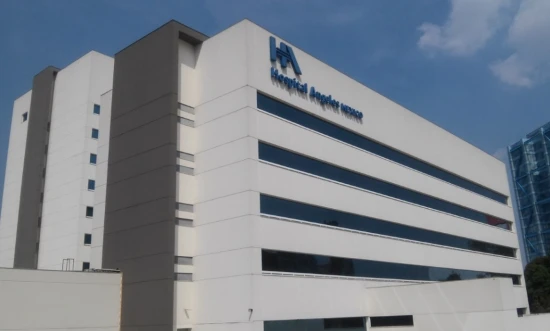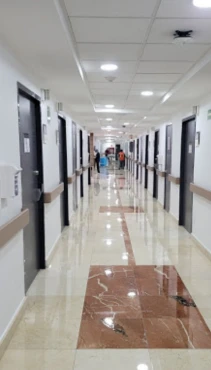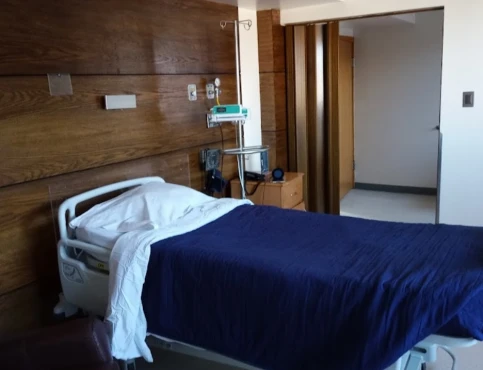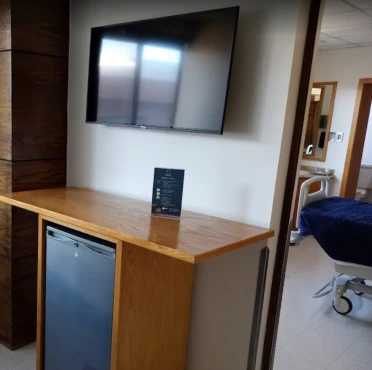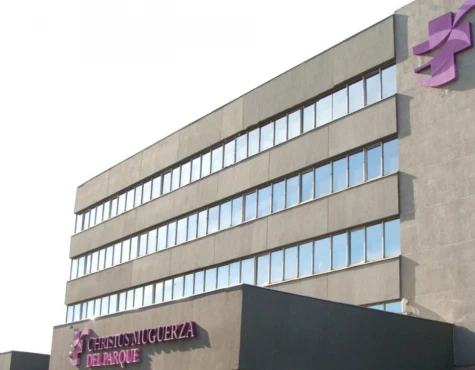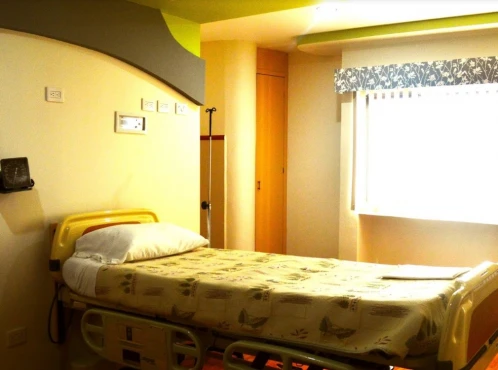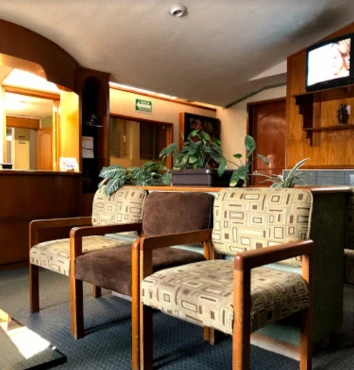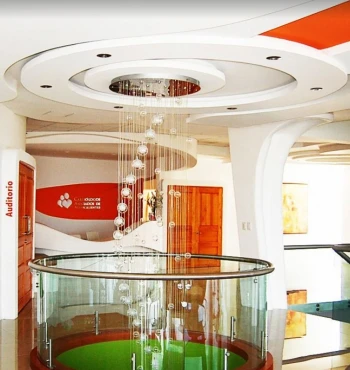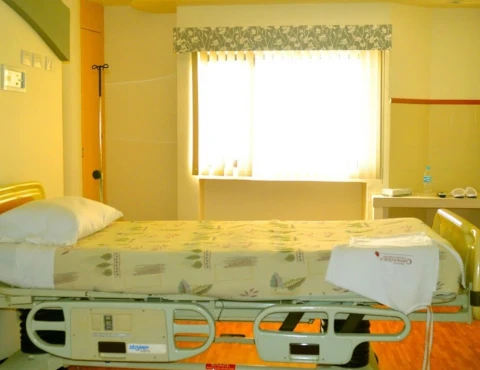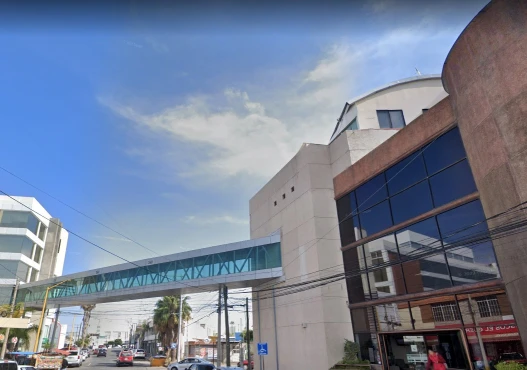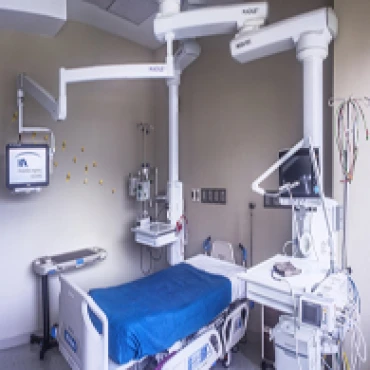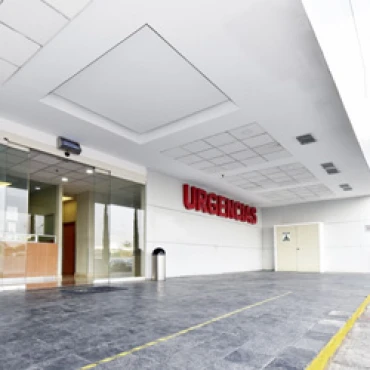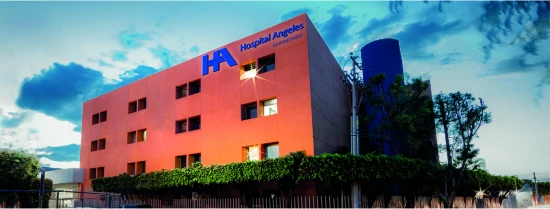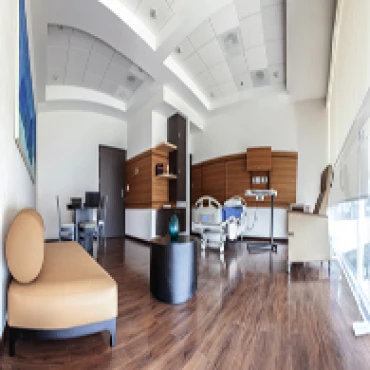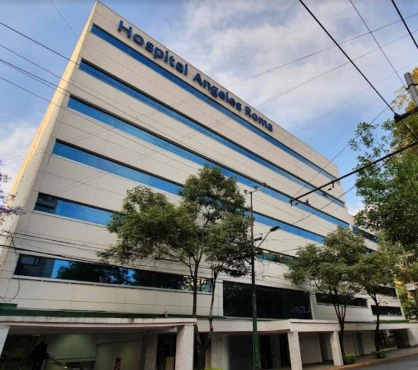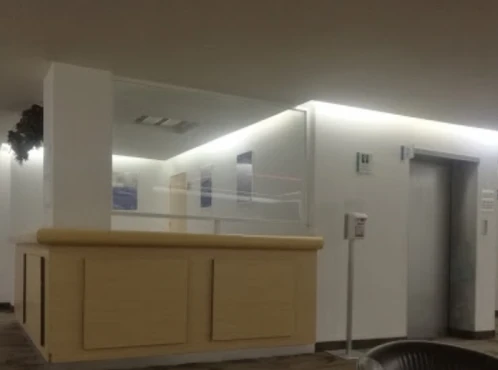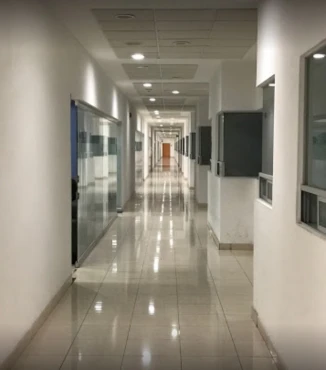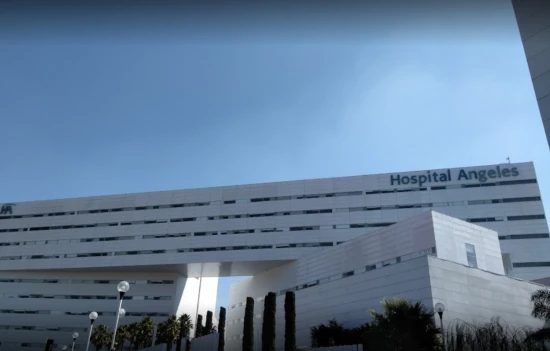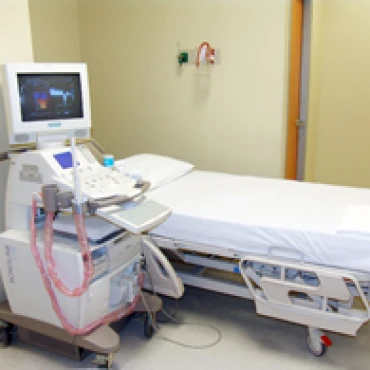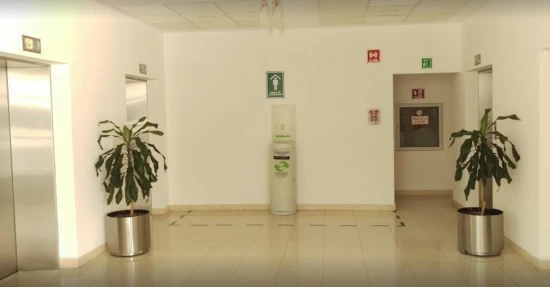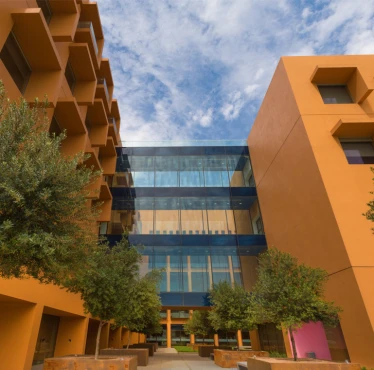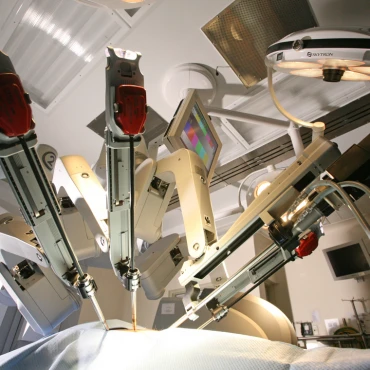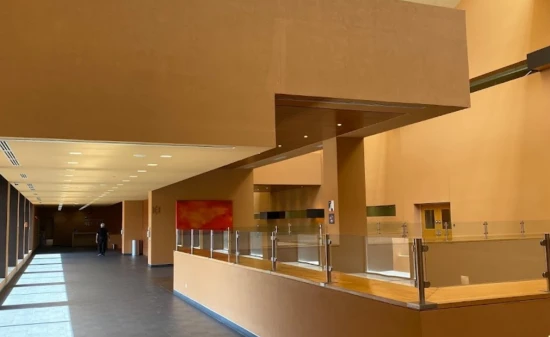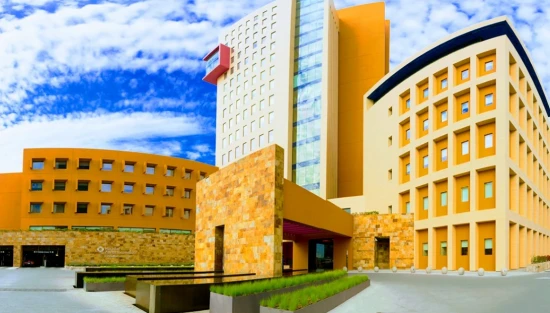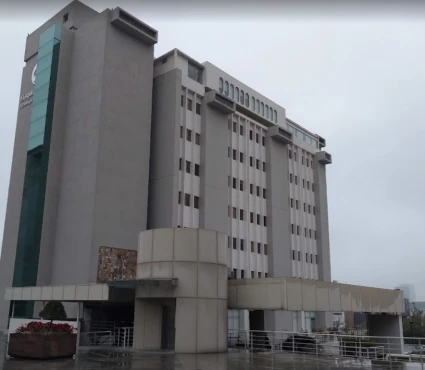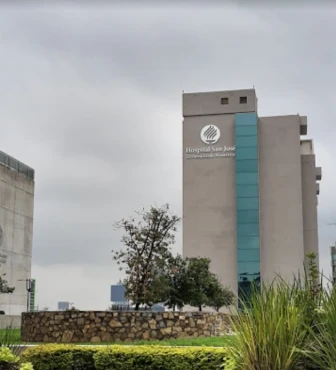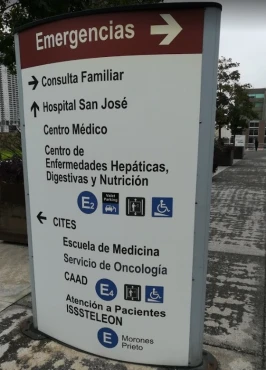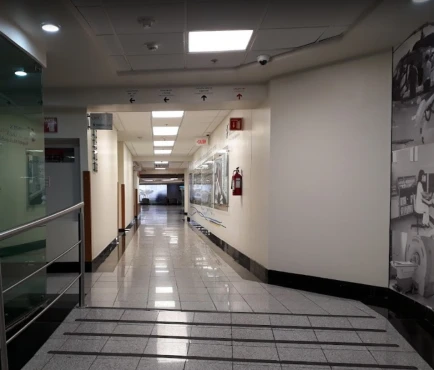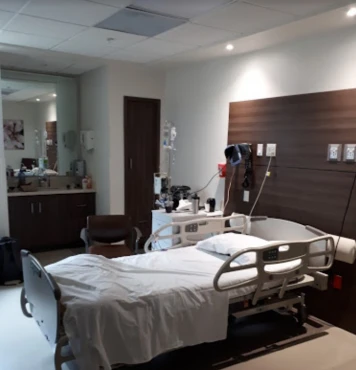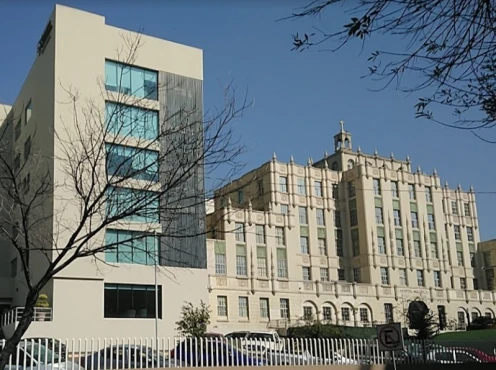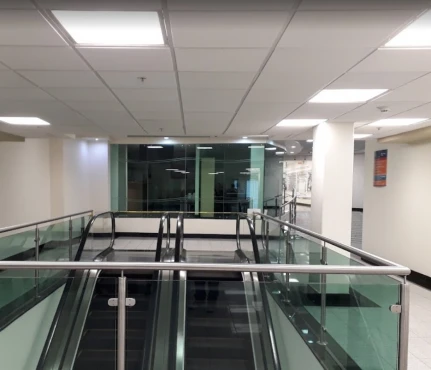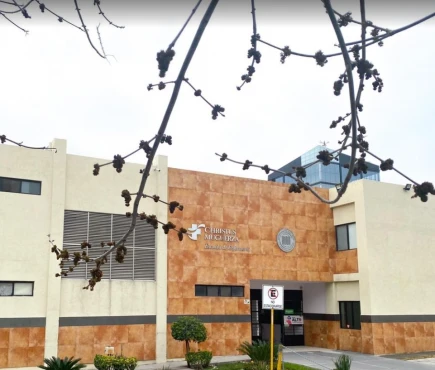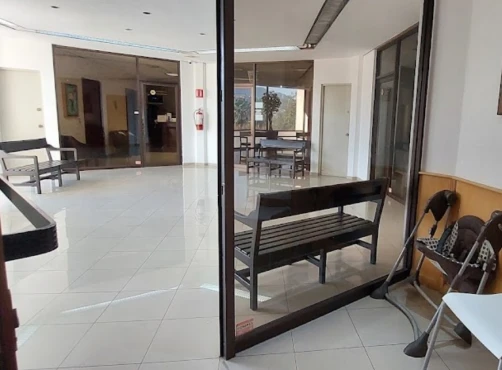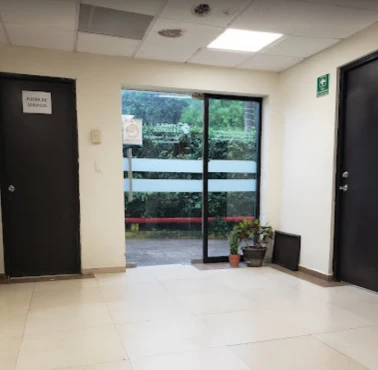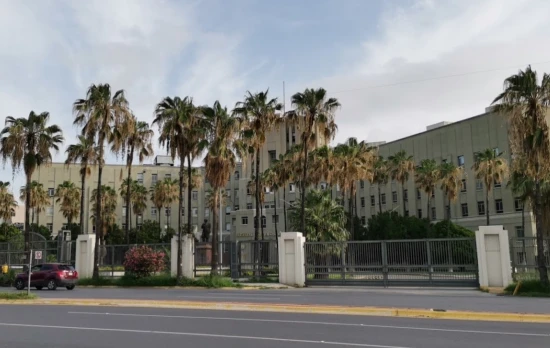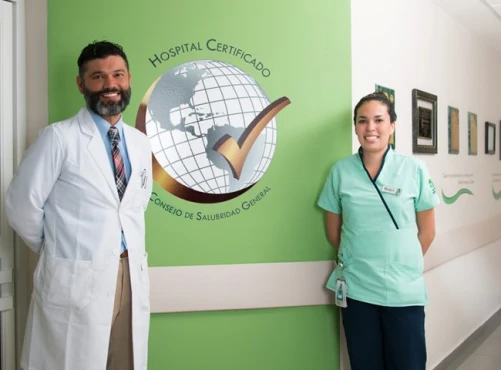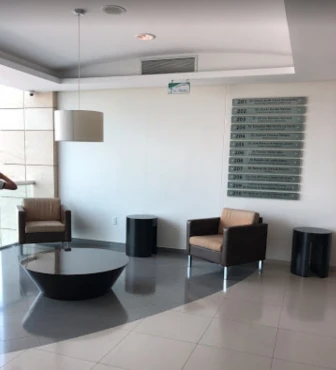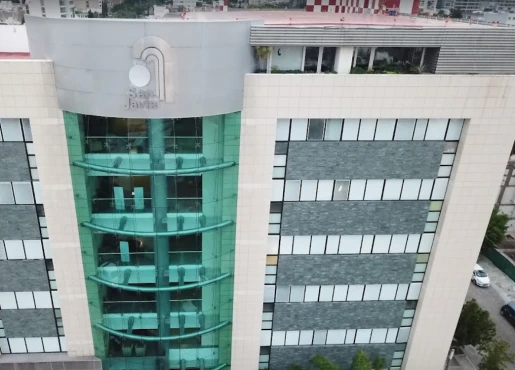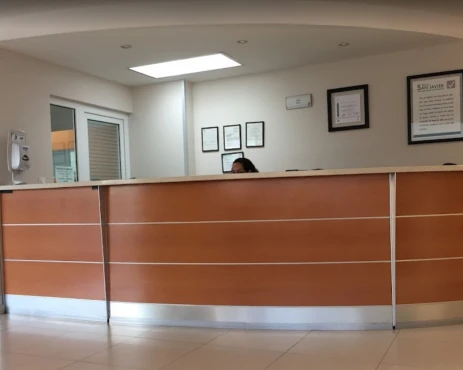Mitral valve stenosis treatment in 24 Cardiac surgery clinics in Mexico
Top
Clinics
Ratings
Diseases
More info
Quick navigation
24 clinics specializing in Cardiac surgery providing treatment of
Mitral valve stenosis
Mitral valve stenosis is a heart condition where the mitral valve becomes narrowed, impeding blood flow from the left atrium to the left ventricle. This can lead to symptoms such as shortness of breath, fatigue, and chest pain.
Read more...
disease in Mexico.
Aguascalientes · 1
Cancún · 1
Chihuahua · 1
Ensenada · 1
Guadalajara · 1
Mexicali · 1
Mexico City · 9
Monterrey · 4
Puebla · 1
San Luis Potosí · 1
Tijuana · 1
You can select a specific city
Acapulco de Juárez · 1
Aguascalientes · 1
Cancún · 1
Chihuahua · 1
Ensenada · 1
Guadalajara · 1
Mexicali · 1
Mexico City · 9
Monterrey · 4
Puebla · 1
San Luis Potosí · 1
San Pedro Garza Garcia · 1
Tijuana · 1
1
from Mariela Murillo
November 05, 2023
I had the worst experience at this hospital, first they lied to me about the waiting time for my lab results. They asked me to come back in 6 hours for my result and before they told me over the phone that it was gonna be 3 hour wait. Then I called before the 6 hours to ask if my results were ready the lady said she sent me the results through email and that they were normal and I that I don’t have to see a doctor. I believed her and we proceed to return to USA after I opened my email for results and I saw my cholesterol level in red I called the hospital and they told me I have to see a doctor because they can’t read the results only a doctor. They wanted me to set up another appointment and waist another day in Tijuana. I asked for an appointment over the phone and they said because I was a first time patient a have to have an in person appontiment. I don’t agree with this because they lied to me on everything, they don’t even help you or guide you when you’re there in person. These people only care about your money please don’t go over here. I regret having my test on this place they are not transparent and not professional at all. 😢
5
from Gabino Morales
October 07, 2023
I’ve been coming here regularly for almost 7 months to treat my tumor in my hand, I’ve hand multiple surgeries and each one has been successful and quick. The border medical pass is a huge perk which eliminates the need to wait hours in line to get back to the states.
5
from Iolanda Bulgaru
October 07, 2023
I was blown away by the quality of care I received! Modern facilities, dedicated staff, and the peace of mind knowing I wasn't sacrificing my savings. This place is setting new standards.
Prices for popular procedures:
-
Mechanical valve replacement
≈ $28,533
-
Bio-prosthetic valve replacement
≈ $26,265
-
Double valve replacement
≈ $22,809
-
Mitral valve replacement (MVR)
≈ $20,474
-
Balloon valvuloplasty
≈ $21,394
-
Percutaneous balloon mitral valvuloplasty (PBMV)
≈ $11,263
-
Open commissurotomy
≈ $12,337
-
Dual chamber pacemaker insertion
≈ $7,800
-
Coronary artery bypass graft (CABG)
≈ $25,360
4.5
5 reviews
1
from Mariela Murillo
November 05, 2023
I had the worst experience at this hospital, first they lied to me about the waiting time for my lab results. They asked me to come back in 6 hours for my result and before they told me over the phone that it was gonna be 3 hour wait. Then I called before the 6 hours to ask if my results were ready the lady said she sent me the results through email and that they were normal and I that I don’t have to see a doctor. I believed her and we proceed to return to USA after I opened my email for results and I saw my cholesterol level in red I called the hospital and they told me I have to see a doctor because they can’t read the results only a doctor. They wanted me to set up another appointment and waist another day in Tijuana. I asked for an appointment over the phone and they said because I was a first time patient a have to have an in person appontiment. I don’t agree with this because they lied to me on everything, they don’t even help you or guide you when you’re there in person. These people only care about your money please don’t go over here. I regret having my test on this place they are not transparent and not professional at all. 😢
5
from Gabino Morales
October 07, 2023
I’ve been coming here regularly for almost 7 months to treat my tumor in my hand, I’ve hand multiple surgeries and each one has been successful and quick. The border medical pass is a huge perk which eliminates the need to wait hours in line to get back to the states.
5
from Iolanda Bulgaru
October 07, 2023
I was blown away by the quality of care I received! Modern facilities, dedicated staff, and the peace of mind knowing I wasn't sacrificing my savings. This place is setting new standards.
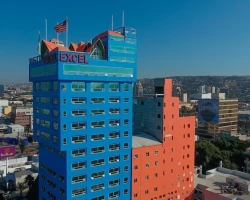
Tijuana, Mexico
Specializations: Cardiac surgery, Vascular surgery, Orthopedic surgery
At Hospital Excel, your health and safety are our main priority, so we have additional security measures to keep you and your family, as well
read more
1
from liliana elizabeth mansilla esquivel
October 22, 2023
I'm really upset with the hospital because before I was discharged they gave me the antibiotic and painkiller medication many hours before I was due to make my bill bigger and they went over the insurance budget and they didn't let me see the breakdown
Disastrous administrative staff
3
from Μίμι τουρς
September 12, 2023
What a lack of professionalism:
- nurses calling each other “amiga” while tending patients in their rooms
- residents and nurses rushing into the patients rooms disregarding any privacy and without any education to greet anyone in the room
- nurses setting up a workstation in the rooms hallway, meaning they have no respect for patients or visitors need for peace and quiet
- poor facilities and lack of maintenance
3
from J Jesus
July 30, 2023
In general, it is a good service that is provided, with the exception of a nurse who, without having any idea of how to channel, gave my wife her arm with a huge bruise. The staff is very friendly and the facilities are clean and comfortable.
The dark one in the rice is the cashier staff, who get annoyed just because, after almost five hours of having discharged a patient, they go to ask them if the documentation to pay is already there. Without any kindness they answer curtly: we are checking, we will call you.
Prices for popular procedures:
-
Balloon valvuloplasty
≈ $21,394
-
Percutaneous balloon mitral valvuloplasty (PBMV)
≈ $11,263
-
Dual chamber pacemaker insertion
≈ $7,800
-
Permanent pacemaker implantation
≈ $7,963
-
Cardiac catheterization
≈ $2,411
-
Percutaneous ASD closure
≈ $9,977
-
Percutaneous closure of ventricular septal defect (VSD)
≈ $10,266
-
Coronary catheterization
≈ $1,814
-
Percutaneous coronary intervention (PCI) with stent insertion
≈ $7,981
4.0
5 reviews
1
from liliana elizabeth mansilla esquivel
October 22, 2023
I'm really upset with the hospital because before I was discharged they gave me the antibiotic and painkiller medication many hours before I was due to make my bill bigger and they went over the insurance budget and they didn't let me see the breakdown
Disastrous administrative staff
3
from Μίμι τουρς
September 12, 2023
What a lack of professionalism:
- nurses calling each other “amiga” while tending patients in their rooms
- residents and nurses rushing into the patients rooms disregarding any privacy and without any education to greet anyone in the room
- nurses setting up a workstation in the rooms hallway, meaning they have no respect for patients or visitors need for peace and quiet
- poor facilities and lack of maintenance
3
from J Jesus
July 30, 2023
In general, it is a good service that is provided, with the exception of a nurse who, without having any idea of how to channel, gave my wife her arm with a huge bruise. The staff is very friendly and the facilities are clean and comfortable.
The dark one in the rice is the cashier staff, who get annoyed just because, after almost five hours of having discharged a patient, they go to ask them if the documentation to pay is already there. Without any kindness they answer curtly: we are checking, we will call you.
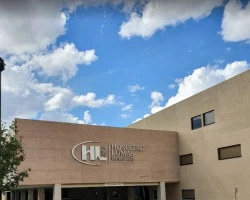
San Luis Potosí, Mexico
Specializations: Cardiac surgery, Vascular surgery, Thoracic surgery, Neurosurgery, Orthopedic surgery, Oncology
Languages: English
The Lomas de San Luis Hospital raises the standards of Medical Care in the region by putting at your disposal all the modernity and technological
read more
5
from Clementina London
October 20, 2022
Going there for the first time, getting information and seeing the Doctor was fast and easy.
1
from David Chase
February 05, 2022
Went to see a doctor who claimed he had been trained at Johns Hopkins. His degrees were completely fake. Unreal. Avoid this hospital at all costs.
3
from Elena Arreguín Osuna
April 12, 2021
The worst service when I was going out from an ambulatory surgery. The person from collection apartments and invoice was rude and unprofessional. The service was very good.
Prices for popular procedures:
-
Mechanical valve replacement
≈ $28,533
-
Bio-prosthetic valve replacement
≈ $26,265
-
Double valve replacement
≈ $22,809
-
Mitral valve replacement (MVR)
≈ $20,474
-
Dual chamber pacemaker insertion
≈ $7,800
-
Coronary artery bypass graft (CABG)
≈ $25,360
-
Heart valve replacement
≈ $2,692
-
Heart valve repair
≈ $22,998
-
Aortic valve replacement (AVR)
≈ $25,310
4.0
5 reviews
5
from Clementina London
October 20, 2022
Going there for the first time, getting information and seeing the Doctor was fast and easy.
1
from David Chase
February 05, 2022
Went to see a doctor who claimed he had been trained at Johns Hopkins. His degrees were completely fake. Unreal. Avoid this hospital at all costs.
3
from Elena Arreguín Osuna
April 12, 2021
The worst service when I was going out from an ambulatory surgery. The person from collection apartments and invoice was rude and unprofessional. The service was very good.
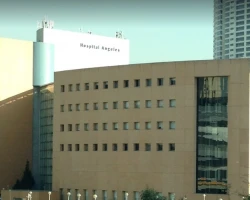
Mexico City, Mexico
Specializations: Cardiac surgery, Vascular surgery, Thoracic surgery, Neurosurgery, Spine surgery, Orthopedic surgery, Oncology
5
from Karina Wade-Gledhill
September 04, 2023
Hands down, one of the best hospitals I've ever been to. Within minutes of bringing my dad here, the entire team was assisting him with his high blood pressure and symptoms of a stroke. The staff is very friendly and attentive. It's important to keep in mind that this is a private hospital, so if you don't have insurance, they will ask you to deposit a certain amount of money into the account. Make sure to mention that you are self-pay. So they can bundle everything up into one packet. I was so impressed with the ability to be able to just walk down to the administrative office and ask what my balance was and get that information within seconds. It is worth every single penny they charge.
5
from Marisol Mayares
July 04, 2023
I was a patient her for 2 nights and it had truly been one a the better experiences of being at a hospital ever. Staff was attentive, cleanliness was amazing and the over all experience with my surgeon was amazing! Highly recommend! Coming from the USA, this is like being at a 5 star hotel!
5
from C Rbt
April 10, 2022
I can’t begin to express how much I enjoyed my visit here. From Admission, medical, food service everyone was so kind! Also, food was a 10/10!
Prices for popular procedures:
-
Mechanical valve replacement
≈ $28,533
-
Bio-prosthetic valve replacement
≈ $26,265
-
Double valve replacement
≈ $22,809
-
Mitral valve replacement (MVR)
≈ $20,474
-
Open commissurotomy
≈ $12,337
-
Dual chamber pacemaker insertion
≈ $7,800
-
Coronary artery bypass graft (CABG)
≈ $25,360
-
Heart valve replacement
≈ $2,692
-
Heart valve repair
≈ $22,998
3.5
5 reviews
5
from Karina Wade-Gledhill
September 04, 2023
Hands down, one of the best hospitals I've ever been to. Within minutes of bringing my dad here, the entire team was assisting him with his high blood pressure and symptoms of a stroke. The staff is very friendly and attentive. It's important to keep in mind that this is a private hospital, so if you don't have insurance, they will ask you to deposit a certain amount of money into the account. Make sure to mention that you are self-pay. So they can bundle everything up into one packet. I was so impressed with the ability to be able to just walk down to the administrative office and ask what my balance was and get that information within seconds. It is worth every single penny they charge.
5
from Marisol Mayares
July 04, 2023
I was a patient her for 2 nights and it had truly been one a the better experiences of being at a hospital ever. Staff was attentive, cleanliness was amazing and the over all experience with my surgeon was amazing! Highly recommend! Coming from the USA, this is like being at a 5 star hotel!
5
from C Rbt
April 10, 2022
I can’t begin to express how much I enjoyed my visit here. From Admission, medical, food service everyone was so kind! Also, food was a 10/10!
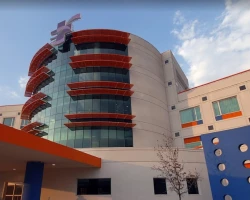
Monterrey, Mexico
Specializations: Cardiac surgery, Vascular surgery, Thoracic surgery, Neurosurgery, Spine surgery, Orthopedic surgery, Oncology
Languages: English
South Hospital From General Medical Consultation and with a Specialist to highly specialized treatments, at Hospital Sur we take care of you Committed to the
read more
1
from Mahsa Poorak
November 27, 2023
My sister was treated for kidney stones in August and we signed a document agreeing to pay $13,800. When we got home, our credit card was charged $38,000. We have made numerous attempts to speak to the hospital, no one has responded. They sent a credit card receipt that clearly shows that they forged our signature and are still demanding payment.
Stay away from this hospital, they will scam you out of lots of money.
1
from Di Mo
August 18, 2023
Terrible money scam. People were nice, but not professional. My mom had a heart issue and was sent here by Xcaret Hotel Mexico (this is a partner hospital with the hotel, says something about the hotel too). She was given EKG and blood test, which was charged 1300USD. The emergency doctor couldn't give any diagnosis with these results and wanted to refer an internal medicine doctor to continue with more procedures (for more charges). The whole time we were there there was no monitor of vital signs, the IV stopped working. We ran away without continuing with any procedure. Stay away from this hospital if you can!
5
from Suzi Brady
July 26, 2023
My son hurt his knee pretty bad after landing awkwardly trampolining at our resort. He couldn’t bare weight on it and had a lot of pain so we researched a few local hospitals and decided on Amerimed based on some of the Google reviews. We were not disappointed and so glad we picked this one. The staff were friendly, knowledgeable and got us in, x-rayed, meds and a knee brace for 6,500 pesos/ $400usd. We were out within 90 minutes.
Great experience. Thank you Amerimed.
Prices for popular procedures:
-
Balloon valvuloplasty
≈ $21,394
-
Percutaneous balloon mitral valvuloplasty (PBMV)
≈ $11,263
-
Cardiac catheterization
≈ $2,411
-
Percutaneous ASD closure
≈ $9,977
-
Percutaneous closure of ventricular septal defect (VSD)
≈ $10,266
-
Coronary catheterization
≈ $1,814
-
Percutaneous coronary intervention (PCI) with stent insertion
≈ $7,981
-
Open pulmonary valvotomy
≈ $18,910
-
Transcatheter closure of patent ductus arteriosus (PDA) in adults
≈ $8,604
3.1
5 reviews
1
from Mahsa Poorak
November 27, 2023
My sister was treated for kidney stones in August and we signed a document agreeing to pay $13,800. When we got home, our credit card was charged $38,000. We have made numerous attempts to speak to the hospital, no one has responded. They sent a credit card receipt that clearly shows that they forged our signature and are still demanding payment.
Stay away from this hospital, they will scam you out of lots of money.
1
from Di Mo
August 18, 2023
Terrible money scam. People were nice, but not professional. My mom had a heart issue and was sent here by Xcaret Hotel Mexico (this is a partner hospital with the hotel, says something about the hotel too). She was given EKG and blood test, which was charged 1300USD. The emergency doctor couldn't give any diagnosis with these results and wanted to refer an internal medicine doctor to continue with more procedures (for more charges). The whole time we were there there was no monitor of vital signs, the IV stopped working. We ran away without continuing with any procedure. Stay away from this hospital if you can!
5
from Suzi Brady
July 26, 2023
My son hurt his knee pretty bad after landing awkwardly trampolining at our resort. He couldn’t bare weight on it and had a lot of pain so we researched a few local hospitals and decided on Amerimed based on some of the Google reviews. We were not disappointed and so glad we picked this one. The staff were friendly, knowledgeable and got us in, x-rayed, meds and a knee brace for 6,500 pesos/ $400usd. We were out within 90 minutes.
Great experience. Thank you Amerimed.

Cancún, Mexico
Specializations: Cardiac surgery, Vascular surgery, Thoracic surgery, Neurosurgery, Spine surgery, Orthopedic surgery, Oncology
Languages: English
Amerimed® is the network of hospitals located in the main tourist destinations in Mexico, and the first organization specialized in medical tourism in the country,
read more
1
from Derek Morales
April 11, 2022
Absolutely horrible service. My father broke his arm and we had to wait like 10-15 minutes just checking in. And then they gave him a terrible cast and diagnosis. We had to come back to the US and go to our local Kaiser Permanente to get actual care for my dad.
Please avoid this place, especially if you are visiting from the US.
Por favor, nunca buscas ayuda aquí, especialmente si vienes extranjero de los Estados Unidos.
5
from Rhoda Wamboldt
August 04, 2021
We have used the services of Valmar Hospital, including surgery and emergency care. Could not ask for better service and care. Having so many specialists at one location is so helpful. Received excellent care from Doctors , nurses and staff.
1
from Jay Neto
August 13, 2020
Horrible service. Showed up here with a case of Food Poisoning and was turned away because my symptoms were "similar" to Covid-19. The front desk person told me to wait outside, didn't even ask me simple questions such as if I had a cough or shortness of breath and after "speaking with her supervisor" told me I had to go to the General Hospital because Velmar was "full". Such a lie! If it was full, why wasn't I turned away when I first showed up? I went to Clinica San Fernando after and was seen by a great doctor there. My cardiologist and urologist have their offices at Velmar and I will let them know I won't be able to attend our appointments anymore at this hospital, because they deny service to people in need.
Prices for popular procedures:
-
Balloon valvuloplasty
≈ $21,394
-
Percutaneous balloon mitral valvuloplasty (PBMV)
≈ $11,263
-
Open commissurotomy
≈ $12,337
-
Dual chamber pacemaker insertion
≈ $7,800
-
Permanent pacemaker implantation
≈ $7,963
-
Radiofrequency ablation (RFA)
≈ $15,008
-
Cardiac catheterization
≈ $2,411
-
Percutaneous ASD closure
≈ $9,977
-
Percutaneous closure of ventricular septal defect (VSD)
≈ $10,266
3.5
5 reviews
1
from Derek Morales
April 11, 2022
Absolutely horrible service. My father broke his arm and we had to wait like 10-15 minutes just checking in. And then they gave him a terrible cast and diagnosis. We had to come back to the US and go to our local Kaiser Permanente to get actual care for my dad.
Please avoid this place, especially if you are visiting from the US.
Por favor, nunca buscas ayuda aquí, especialmente si vienes extranjero de los Estados Unidos.
5
from Rhoda Wamboldt
August 04, 2021
We have used the services of Valmar Hospital, including surgery and emergency care. Could not ask for better service and care. Having so many specialists at one location is so helpful. Received excellent care from Doctors , nurses and staff.
1
from Jay Neto
August 13, 2020
Horrible service. Showed up here with a case of Food Poisoning and was turned away because my symptoms were "similar" to Covid-19. The front desk person told me to wait outside, didn't even ask me simple questions such as if I had a cough or shortness of breath and after "speaking with her supervisor" told me I had to go to the General Hospital because Velmar was "full". Such a lie! If it was full, why wasn't I turned away when I first showed up? I went to Clinica San Fernando after and was seen by a great doctor there. My cardiologist and urologist have their offices at Velmar and I will let them know I won't be able to attend our appointments anymore at this hospital, because they deny service to people in need.

Ensenada, Mexico
Specializations: Cardiac surgery, Vascular surgery, Thoracic surgery, Neurosurgery, Spine surgery, Orthopedic surgery, Oncology
Hospital Velmar was founded in the year 2000 with the vision of building a private and modern hospital. Offering the port of Ensenada a comprehensive
read more
1
from Charleston Coryea
January 22, 2023
I wasn't going to write a review (I'm so over all this), but I feel compelled to after reading a review that was extremely similar to what I experienced here for COVID-19 treatment.
I tested COVID-positive on January 3rd and started Paxlovid. I saw my neighborhood doctor on January 4th. I am vaccinated (and boosted) but am at high risk with asthma. I was given steroids and breathing medicine. I was instructed to go to the hospital if I got worse.
I got worse. The following evening, my oxygen dropped below 80. Scared, I called an ambulance and requested to be taken to this hospital as it was supposed to be the best. They took my oxygen in the ambulance and immediately gave me oxygen. I was on oxygen the whole time in the ambulance.
I was taken off oxygen when I arrived as my saturation reached the high 90s. I requested the antiviral remdesivir. The doctor refused to give me the medicine. I explained how my condition worsened despite days on Paxlovid, steroid injections, oral steroids, bronchodilators, and rescue inhalers. He could not have cared less.
I requested to leave as the doctor was not going to treat me (he charged me, though). The doctor told me there were other ID specialists. I requested to speak to one of them, and the doctor left. While waiting, someone else came in and said there were no other ID specialists there, so I paid and left. It should be noted my saturation had fallen to 92% by that time.
I struggled at home with symptoms for the next few days. I continued testing positive after completing Paxlovid. My condition worsened, and I returned to the neighboring doctor about a week after leaving the hospital. Still symptomatic and COVID-positive, he examined me and found pneumonia. My labs were also abnormal, showing evidence I had developed blood clots due to COVID-19. He prescribed medicine for pneumonia and clots (which worked). All this could have been prevented.
Trying to get my medical records from this hospital afterwords (for insurance) was like pulling teeth. It took forever to get my records, and when I finally did, I was shocked. The doctor noted that I said things I never did. My signature was forged on the documents.
Worst hospital experience ever. Very expensive and received no treatment. The administration is a nightmare as well. Avoid it if possible.
2
from Rasmus Duun
September 12, 2022
We have been living In 3 different countries for the past 9 years, never experienced anything as bad. We have a a top insurance but they “suddenly” only excepts credit card payment. Stayed for additional 5 hours because they did not let’s leave. No one speaks English except the doctors. However, doctors are very competent and reason for not one but two stars.
3
from Кris Kostina
December 08, 2019
Absurdly (like, for real) expensive for a very mediocre level of service. I went to the urgency center, and i found it very useless that on every stage (reception, triage, first and second doctor) they asked me the same questions. The doctor took more than half an hour to arrive. The receptionist has misinformed me and I did a very expensive (since I’m traveling abroad) call which wasn’t necessary at that moment. Also, several times there were several people coming in at a time, also unnecessary, certainly didn’t create a feeling of comfort. The room in which I was attended was small and the door was never closed.
Prices for popular procedures:
-
Mechanical valve replacement
≈ $28,533
-
Bio-prosthetic valve replacement
≈ $26,265
-
Double valve replacement
≈ $22,809
-
Mitral valve replacement (MVR)
≈ $20,474
-
Balloon valvuloplasty
≈ $21,394
-
Percutaneous balloon mitral valvuloplasty (PBMV)
≈ $11,263
-
Open commissurotomy
≈ $12,337
-
Dual chamber pacemaker insertion
≈ $7,800
-
Coronary artery bypass graft (CABG)
≈ $25,360
4.4
5 reviews
1
from Charleston Coryea
January 22, 2023
I wasn't going to write a review (I'm so over all this), but I feel compelled to after reading a review that was extremely similar to what I experienced here for COVID-19 treatment.
I tested COVID-positive on January 3rd and started Paxlovid. I saw my neighborhood doctor on January 4th. I am vaccinated (and boosted) but am at high risk with asthma. I was given steroids and breathing medicine. I was instructed to go to the hospital if I got worse.
I got worse. The following evening, my oxygen dropped below 80. Scared, I called an ambulance and requested to be taken to this hospital as it was supposed to be the best. They took my oxygen in the ambulance and immediately gave me oxygen. I was on oxygen the whole time in the ambulance.
I was taken off oxygen when I arrived as my saturation reached the high 90s. I requested the antiviral remdesivir. The doctor refused to give me the medicine. I explained how my condition worsened despite days on Paxlovid, steroid injections, oral steroids, bronchodilators, and rescue inhalers. He could not have cared less.
I requested to leave as the doctor was not going to treat me (he charged me, though). The doctor told me there were other ID specialists. I requested to speak to one of them, and the doctor left. While waiting, someone else came in and said there were no other ID specialists there, so I paid and left. It should be noted my saturation had fallen to 92% by that time.
I struggled at home with symptoms for the next few days. I continued testing positive after completing Paxlovid. My condition worsened, and I returned to the neighboring doctor about a week after leaving the hospital. Still symptomatic and COVID-positive, he examined me and found pneumonia. My labs were also abnormal, showing evidence I had developed blood clots due to COVID-19. He prescribed medicine for pneumonia and clots (which worked). All this could have been prevented.
Trying to get my medical records from this hospital afterwords (for insurance) was like pulling teeth. It took forever to get my records, and when I finally did, I was shocked. The doctor noted that I said things I never did. My signature was forged on the documents.
Worst hospital experience ever. Very expensive and received no treatment. The administration is a nightmare as well. Avoid it if possible.
2
from Rasmus Duun
September 12, 2022
We have been living In 3 different countries for the past 9 years, never experienced anything as bad. We have a a top insurance but they “suddenly” only excepts credit card payment. Stayed for additional 5 hours because they did not let’s leave. No one speaks English except the doctors. However, doctors are very competent and reason for not one but two stars.
3
from Кris Kostina
December 08, 2019
Absurdly (like, for real) expensive for a very mediocre level of service. I went to the urgency center, and i found it very useless that on every stage (reception, triage, first and second doctor) they asked me the same questions. The doctor took more than half an hour to arrive. The receptionist has misinformed me and I did a very expensive (since I’m traveling abroad) call which wasn’t necessary at that moment. Also, several times there were several people coming in at a time, also unnecessary, certainly didn’t create a feeling of comfort. The room in which I was attended was small and the door was never closed.
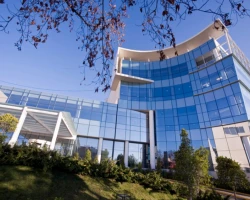
Mexico City, Mexico
Specializations: Cardiac surgery, Vascular surgery, Thoracic surgery, Oncology
We are an institution that cares for the health and safety of our patients through the best medical practices. We distinguish ourselves by being supportive
read more
1
from Ivonne Lazcano
November 22, 2023
Terrible service, old rooms, they charge you ghost expenses. I believe that the morning nurses are not paid well, because they do things reluctantly, they make faces at you, they do not come soon, they are not organized in patient care, they do not disinfect the thermometers every time they come to take signs. .
Very expensive and they give you the cheapest paper on the market.
As a tip: it improves attention when you call public relations.
Better care and lower cost in smaller private hospitals.
Being here is similar to the IMSS, only here you go faster, but from then on it's terrible.
The Angeles Mocel Hospital branch is good, quality and the staff is extremely friendly.
5
from Charles Wurts
June 21, 2023
I found myself sick in Mexico City and after some hesitation I took myself to Angeles. I am from the United States and my review will be from the perspective of someone who is used to USA healthcare. Angeles was amazing when it came to everything important. My intake was awkward but the woman who helped me did everything she could for me since I was incapable at that time. The doctors where amazing and everything to do with my diagnostic evaluation was efficient and professional. (however, unlike in the USA, the doctors took there time to perform a complete evaluation and were not rushed). The emergency room care was also excellent. When I left the emergency room and went to a normal room things were not as good, in fact I was pretty angry with my nurse there.
I was blessed to have a friend in Columbia to use for translation but everything to do with being in the regular room and paying my bill was extremely awkward. Hospital translation services were never made available to me.
Regardless, I feel like the healthcare I received was excellent and I would never hesitate to use Hospital Angeles. I found my care here to be at least equivalent if not superior to the care I'm used to in the USA
1
from Narciso Dominguez
August 02, 2022
To my fellow US Citizens I suggest this hospital but please don’t get services from Dr. Gilberto Hernandez Bautista. Unprofessional anesthesiologist. Be sure he won’t be involved in your surgery.
Prices for popular procedures:
-
Mechanical valve replacement
≈ $28,533
-
Bio-prosthetic valve replacement
≈ $26,265
-
Double valve replacement
≈ $22,809
-
Mitral valve replacement (MVR)
≈ $20,474
-
Dual chamber pacemaker insertion
≈ $7,800
-
Coronary artery bypass graft (CABG)
≈ $25,360
-
Heart valve replacement
≈ $2,692
-
Heart valve repair
≈ $22,998
-
Aortic valve replacement (AVR)
≈ $25,310
3.3
5 reviews
1
from Ivonne Lazcano
November 22, 2023
Terrible service, old rooms, they charge you ghost expenses. I believe that the morning nurses are not paid well, because they do things reluctantly, they make faces at you, they do not come soon, they are not organized in patient care, they do not disinfect the thermometers every time they come to take signs. .
Very expensive and they give you the cheapest paper on the market.
As a tip: it improves attention when you call public relations.
Better care and lower cost in smaller private hospitals.
Being here is similar to the IMSS, only here you go faster, but from then on it's terrible.
The Angeles Mocel Hospital branch is good, quality and the staff is extremely friendly.
5
from Charles Wurts
June 21, 2023
I found myself sick in Mexico City and after some hesitation I took myself to Angeles. I am from the United States and my review will be from the perspective of someone who is used to USA healthcare. Angeles was amazing when it came to everything important. My intake was awkward but the woman who helped me did everything she could for me since I was incapable at that time. The doctors where amazing and everything to do with my diagnostic evaluation was efficient and professional. (however, unlike in the USA, the doctors took there time to perform a complete evaluation and were not rushed). The emergency room care was also excellent. When I left the emergency room and went to a normal room things were not as good, in fact I was pretty angry with my nurse there.
I was blessed to have a friend in Columbia to use for translation but everything to do with being in the regular room and paying my bill was extremely awkward. Hospital translation services were never made available to me.
Regardless, I feel like the healthcare I received was excellent and I would never hesitate to use Hospital Angeles. I found my care here to be at least equivalent if not superior to the care I'm used to in the USA
1
from Narciso Dominguez
August 02, 2022
To my fellow US Citizens I suggest this hospital but please don’t get services from Dr. Gilberto Hernandez Bautista. Unprofessional anesthesiologist. Be sure he won’t be involved in your surgery.
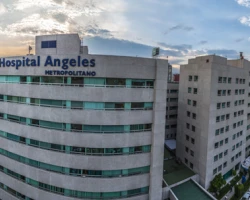
Mexico City, Mexico
Specializations: Cardiac surgery, Vascular surgery, Thoracic surgery, Neurosurgery, Orthopedic surgery, Oncology
1
from Santiago Duran
September 05, 2023
This is the worst hospital experience I've had in my life. I arrived to the emergency room at noon and left at 4 PM whit out being attended to. They charged me $290 USD upon arrival and then made me whit for 2 hours. When they finally call me in, the doctor looked at me 30 seconds and ordered an ultrasonic check that NEVER came. Finally I decided to leave as the lack of attention, the negligence, the lack of information, the complete disregard for my problem and obviously the time spent doing absolutely nothing and listening to the nurses laugh and joke around out side my cubicle, got the best of me. When I decided to leave they made me what another 45 minutes just to return my deposit and give me back my ID which was retained! (Yes the take your official ID and they DON'T give it back until they secure your payment. This is illegal by the way) by the receptionists.
By the way, I came to the ER with an internal bleeding due to a fall. The Traumatology "Dr. Jenny" gave me 30 seconds to look at the huge hematoma I had, and then one hour later another 30 seconds to give me the "self leave paper" to sign. NEVER She gave me any indication or had the intention to help me. In fact she said "there is nothing I can do".
AVOID THIS EMERGENCY ROOM AT ALL COSTS!
1
from Sridhar Bhavani
May 27, 2022
Worst hospitals only into making money I could have got my treatment done cheaper in the USA...they just dump what ever they want for kidney stone laser treatment and stay was a bomb 210000 pesos+80000 for doctors fees...they will empty ur pockets with sweet talks beware doctors are good you could use their services in other hospitals....the taxation department should look into these scamsters
5
from Gabriel Cristian De La Prada
November 09, 2017
Así a surgeon I can strongly recommend this hospital, superb service,and no,j don't work there
Prices for popular procedures:
-
Mechanical valve replacement
≈ $28,533
-
Bio-prosthetic valve replacement
≈ $26,265
-
Double valve replacement
≈ $22,809
-
Mitral valve replacement (MVR)
≈ $20,474
-
Dual chamber pacemaker insertion
≈ $7,800
-
Coronary artery bypass graft (CABG)
≈ $25,360
-
Heart valve replacement
≈ $2,692
-
Heart valve repair
≈ $22,998
-
Aortic valve replacement (AVR)
≈ $25,310
3.7
5 reviews
1
from Santiago Duran
September 05, 2023
This is the worst hospital experience I've had in my life. I arrived to the emergency room at noon and left at 4 PM whit out being attended to. They charged me $290 USD upon arrival and then made me whit for 2 hours. When they finally call me in, the doctor looked at me 30 seconds and ordered an ultrasonic check that NEVER came. Finally I decided to leave as the lack of attention, the negligence, the lack of information, the complete disregard for my problem and obviously the time spent doing absolutely nothing and listening to the nurses laugh and joke around out side my cubicle, got the best of me. When I decided to leave they made me what another 45 minutes just to return my deposit and give me back my ID which was retained! (Yes the take your official ID and they DON'T give it back until they secure your payment. This is illegal by the way) by the receptionists.
By the way, I came to the ER with an internal bleeding due to a fall. The Traumatology "Dr. Jenny" gave me 30 seconds to look at the huge hematoma I had, and then one hour later another 30 seconds to give me the "self leave paper" to sign. NEVER She gave me any indication or had the intention to help me. In fact she said "there is nothing I can do".
AVOID THIS EMERGENCY ROOM AT ALL COSTS!
1
from Sridhar Bhavani
May 27, 2022
Worst hospitals only into making money I could have got my treatment done cheaper in the USA...they just dump what ever they want for kidney stone laser treatment and stay was a bomb 210000 pesos+80000 for doctors fees...they will empty ur pockets with sweet talks beware doctors are good you could use their services in other hospitals....the taxation department should look into these scamsters
5
from Gabriel Cristian De La Prada
November 09, 2017
Así a surgeon I can strongly recommend this hospital, superb service,and no,j don't work there
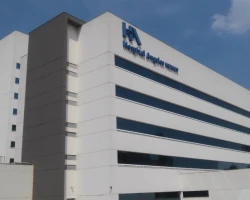
Mexico City, Mexico
Specializations: Cardiac surgery, Vascular surgery, Thoracic surgery, Neurosurgery, Orthopedic surgery, Oncology
1
from Ricardo Lozano
November 20, 2023
Terrible facilities, the room we paid for without heating, the chair old and hard, the recliner broken... a 29-inch television located almost on the ceiling of the room.
Not to mention that those who visited us had to wait on the street because their waiting areas do not know who they are designated for... a complete mistake to have chosen this hospital to give birth to my daughter.
3
from Selene Delgado
November 07, 2023
The doctor is excellent, but the security personnel are disgusting, zero common sense, they treat you as if you were begging them for alms, at 8pm my sister arrived to greet my husband, but my brother-in-law was there and as he was leaving I went down to wait with her, my idea was to wait in the entrance room, which by the way was empty, and they didn't let us, they told us we had to wait outside, the truth is, that had never happened to me in a private clinic 😡 the security people were very rude
1
from Mónica
October 27, 2023
TERRIBLE SERVICE from the guards, they have ZERO empathy, AGREE in all areas, because before going I contacted them to see if they would let me in, the nurse said no problem, to mention that it is on the second floor in the short stay When the security personnel arrived, they asked me and I told them where I was going. They asked me for the name of the patient and when I told them they started searching and told me in an annoyed tone: “IT'S NOT TRUE.” A tall lady with glasses who was sitting there started rude to tell me that there was only for pregnant women, so I dialed to confirm and the RUDE lady started telling the other guards not to let me in because there was another person there that I was talking to, they really treat you like If you were committing a crime, instead of having empathy, the lady who works there is super rude, YOU KNOW WHO SHE IS because they told me that "THIS IS SHE WAS" I mean, she has several complaints, I told them that they had told me that it was possible, that I would not have gone there without asking, and they would not let me in, and they told me that the nurses and doctors DID NOT HAVE A VOICE OR VOTE, that they should dedicate themselves to their own thing, I asked them to file a formal COMPLAINT or at least a suggestion and With a mocking tone they told me: THESE ARE NOT HOURS and they passed me on to the admission card, for what? If she is the same, she told me that the only ones who had “the power” were the guards and that if they said no, it was NO, so I told her that my annoyance was that I asked if it was possible to enter, before going, and that right there they asked and told me that if the corresponding area and that I had not driven there for this to happen, she told me that she could not do anything, so AGREE IN ALL THE AREAS, so I returned and They marked me again, the nurse said to let me in, OF COURSE YOU COULD, and I told the RUDE guard again along with that lady, and another man arrived and they asked him if it was possible? And he told them yes, to let me pass... COULD NOT? They really have more empathetic and kind staff, because it is a paying hospital, and one does not go there to be treated that way, learn to have adequate service and have a complaints and suggestions department so that they can see all their areas of opportunity and improve them, do not be mediocre and stay with the complaint “that in the end nothing happens” but of course what happens, because voice in voice is the most powerful…. As for the nurses, my respects, but the guards, who are the INITIAL image of the hospital, leave you wanting to burn the bad service they have EVERYWHERE... Don't go to that hospital, there are more expensive hospitals, of better quality and you will They treat you with a lot of kindness and empathy, just like places like the IMSS where the guards have more empathy than there, not like CHRISTUS MUGUERZA, they look like police officers dealing with criminals... DISGUSTING guard staff... PS: Isn't it that you couldn't enter? I am writing this from their short stay on the second floor… INCOMPETENT
Prices for popular procedures:
-
Mechanical valve replacement
≈ $28,533
-
Bio-prosthetic valve replacement
≈ $26,265
-
Double valve replacement
≈ $22,809
-
Mitral valve replacement (MVR)
≈ $20,474
-
Open commissurotomy
≈ $12,337
-
Dual chamber pacemaker insertion
≈ $7,800
-
Coronary artery bypass graft (CABG)
≈ $25,360
-
Heart valve replacement
≈ $2,692
-
Heart valve repair
≈ $22,998
4.0
5 reviews
1
from Ricardo Lozano
November 20, 2023
Terrible facilities, the room we paid for without heating, the chair old and hard, the recliner broken... a 29-inch television located almost on the ceiling of the room.
Not to mention that those who visited us had to wait on the street because their waiting areas do not know who they are designated for... a complete mistake to have chosen this hospital to give birth to my daughter.
3
from Selene Delgado
November 07, 2023
The doctor is excellent, but the security personnel are disgusting, zero common sense, they treat you as if you were begging them for alms, at 8pm my sister arrived to greet my husband, but my brother-in-law was there and as he was leaving I went down to wait with her, my idea was to wait in the entrance room, which by the way was empty, and they didn't let us, they told us we had to wait outside, the truth is, that had never happened to me in a private clinic 😡 the security people were very rude
1
from Mónica
October 27, 2023
TERRIBLE SERVICE from the guards, they have ZERO empathy, AGREE in all areas, because before going I contacted them to see if they would let me in, the nurse said no problem, to mention that it is on the second floor in the short stay When the security personnel arrived, they asked me and I told them where I was going. They asked me for the name of the patient and when I told them they started searching and told me in an annoyed tone: “IT'S NOT TRUE.” A tall lady with glasses who was sitting there started rude to tell me that there was only for pregnant women, so I dialed to confirm and the RUDE lady started telling the other guards not to let me in because there was another person there that I was talking to, they really treat you like If you were committing a crime, instead of having empathy, the lady who works there is super rude, YOU KNOW WHO SHE IS because they told me that "THIS IS SHE WAS" I mean, she has several complaints, I told them that they had told me that it was possible, that I would not have gone there without asking, and they would not let me in, and they told me that the nurses and doctors DID NOT HAVE A VOICE OR VOTE, that they should dedicate themselves to their own thing, I asked them to file a formal COMPLAINT or at least a suggestion and With a mocking tone they told me: THESE ARE NOT HOURS and they passed me on to the admission card, for what? If she is the same, she told me that the only ones who had “the power” were the guards and that if they said no, it was NO, so I told her that my annoyance was that I asked if it was possible to enter, before going, and that right there they asked and told me that if the corresponding area and that I had not driven there for this to happen, she told me that she could not do anything, so AGREE IN ALL THE AREAS, so I returned and They marked me again, the nurse said to let me in, OF COURSE YOU COULD, and I told the RUDE guard again along with that lady, and another man arrived and they asked him if it was possible? And he told them yes, to let me pass... COULD NOT? They really have more empathetic and kind staff, because it is a paying hospital, and one does not go there to be treated that way, learn to have adequate service and have a complaints and suggestions department so that they can see all their areas of opportunity and improve them, do not be mediocre and stay with the complaint “that in the end nothing happens” but of course what happens, because voice in voice is the most powerful…. As for the nurses, my respects, but the guards, who are the INITIAL image of the hospital, leave you wanting to burn the bad service they have EVERYWHERE... Don't go to that hospital, there are more expensive hospitals, of better quality and you will They treat you with a lot of kindness and empathy, just like places like the IMSS where the guards have more empathy than there, not like CHRISTUS MUGUERZA, they look like police officers dealing with criminals... DISGUSTING guard staff... PS: Isn't it that you couldn't enter? I am writing this from their short stay on the second floor… INCOMPETENT
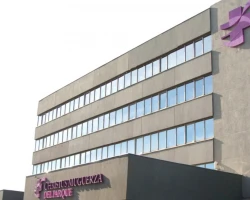
Chihuahua, Mexico
Specializations: Cardiac surgery, Vascular surgery, Thoracic surgery, Neurosurgery, Orthopedic surgery, Oncology
Languages: English
This hospital is the result of the effort and enthusiastic work of many people, who throughout its history have contributed the best of themselves in
read more
1
from PAOLA LARA D S
January 16, 2023
Good doctors, half of the nursing staff are very attentive, and the other half need a customer service course, and there are no insurance personnel on weekends... no one from the insurance takes care of you on Saturdays or Sunday. I do not recommend👎
5
from Félix Gutiérrez
January 01, 2023
Excellent cardiology hospital, the doctors are top notch and the staff that work there are the same. A thousand congratulations.
1
from Pao Cer
May 07, 2022
I am currently hospitalized in this place and the truth is that I feel that the service gives a lot to be desired, the nursing shifts go to extremes, some are good and others are bad.
It's six in the afternoon and they haven't come to clean the room, I told the nurse on duty and he says that it's not up to him to file the report, so what do I do? why so
"how cheap is the stay" well, no
Prices for popular procedures:
-
Balloon valvuloplasty
≈ $21,394
-
Percutaneous balloon mitral valvuloplasty (PBMV)
≈ $11,263
-
Dual chamber pacemaker insertion
≈ $7,800
-
Coronary artery bypass graft (CABG)
≈ $25,360
-
Off-pump coronary artery bypass surgery
≈ $18,816
-
Permanent pacemaker implantation
≈ $7,963
-
Radiofrequency ablation (RFA)
≈ $15,008
-
Cardiac catheterization
≈ $2,411
-
Percutaneous ASD closure
≈ $9,977
3.2
5 reviews
1
from PAOLA LARA D S
January 16, 2023
Good doctors, half of the nursing staff are very attentive, and the other half need a customer service course, and there are no insurance personnel on weekends... no one from the insurance takes care of you on Saturdays or Sunday. I do not recommend👎
5
from Félix Gutiérrez
January 01, 2023
Excellent cardiology hospital, the doctors are top notch and the staff that work there are the same. A thousand congratulations.
1
from Pao Cer
May 07, 2022
I am currently hospitalized in this place and the truth is that I feel that the service gives a lot to be desired, the nursing shifts go to extremes, some are good and others are bad.
It's six in the afternoon and they haven't come to clean the room, I told the nurse on duty and he says that it's not up to him to file the report, so what do I do? why so
"how cheap is the stay" well, no
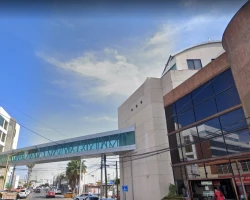
Aguascalientes, Mexico
Specializations: Cardiac surgery, Vascular surgery, Thoracic surgery, Neurosurgery, Orthopedic surgery, Oncology
Languages: English
Hospital Cardiológica Aguascalientes emerged as a cardiology clinic in 1986, for the diagnosis and non-invasive treatment of patients with heart conditions. Our location in
read more
1
from Michell Gm
December 05, 2023
If you have the opportunity to be treated at this hospital MISS IT!!
The service leaves a lot to be desired, admission, cash and public relations are extremely inefficient, they do everything wrong
No
They are empathetic with patients and do not provide solutions of any kind.
The facilities are being remodeled and they have no qualms about drilling you in the
Head at 2:00 am, they have no respect for the patients nor do they give a damn about their peace of mind and rest.
Terrible service!! In addition to their times being ridiculous to deliver an account, register and charge you: more than 8 hours and they can't do it!!!
1
from MIMOX ONE (mimox230)
August 22, 2023
Without a doubt, one of my worst experiences, from the hospital...everything is super neglected and mistreated, even the staff, especially the person: ROSARIO LAGOS, she is supposed to be the head of public relations, she was asked several questions and she never knew how to answer adequately. a person who does not have tact or sense to be a head of public relations, the hospital should pay more attention to the people it hires in its positions, not just out of friendship, handing over positions with great positions to people who are too big for the position….
Do not waste time and do not contract the service provided by this hospital, TAKE THE ANGELES DEL PEDREGAL HOSPITAL AS AN EXAMPLE
5
from Marycnso
August 01, 2023
My experience with the doctors, anesthesiologists and nurses was very human. Super nice and attentive nurses. They were always on the lookout. The doctors are very professional and explained everything to me in detail.
Those who complain about the insurance and that the income is late. You should see this with your manager, but it is normal, even upon admission, they mention that the insurance takes 4 to 6 hours to respond and this has nothing to do with the hospital.
Prices for popular procedures:
-
Mechanical valve replacement
≈ $28,533
-
Bio-prosthetic valve replacement
≈ $26,265
-
Double valve replacement
≈ $22,809
-
Mitral valve replacement (MVR)
≈ $20,474
-
Balloon valvuloplasty
≈ $21,394
-
Percutaneous balloon mitral valvuloplasty (PBMV)
≈ $11,263
-
Open commissurotomy
≈ $12,337
-
Dual chamber pacemaker insertion
≈ $7,800
-
Coronary artery bypass graft (CABG)
≈ $25,360
3.2
5 reviews
1
from Michell Gm
December 05, 2023
If you have the opportunity to be treated at this hospital MISS IT!!
The service leaves a lot to be desired, admission, cash and public relations are extremely inefficient, they do everything wrong
No
They are empathetic with patients and do not provide solutions of any kind.
The facilities are being remodeled and they have no qualms about drilling you in the
Head at 2:00 am, they have no respect for the patients nor do they give a damn about their peace of mind and rest.
Terrible service!! In addition to their times being ridiculous to deliver an account, register and charge you: more than 8 hours and they can't do it!!!
1
from MIMOX ONE (mimox230)
August 22, 2023
Without a doubt, one of my worst experiences, from the hospital...everything is super neglected and mistreated, even the staff, especially the person: ROSARIO LAGOS, she is supposed to be the head of public relations, she was asked several questions and she never knew how to answer adequately. a person who does not have tact or sense to be a head of public relations, the hospital should pay more attention to the people it hires in its positions, not just out of friendship, handing over positions with great positions to people who are too big for the position….
Do not waste time and do not contract the service provided by this hospital, TAKE THE ANGELES DEL PEDREGAL HOSPITAL AS AN EXAMPLE
5
from Marycnso
August 01, 2023
My experience with the doctors, anesthesiologists and nurses was very human. Super nice and attentive nurses. They were always on the lookout. The doctors are very professional and explained everything to me in detail.
Those who complain about the insurance and that the income is late. You should see this with your manager, but it is normal, even upon admission, they mention that the insurance takes 4 to 6 hours to respond and this has nothing to do with the hospital.
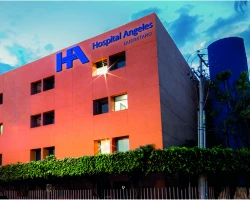
Mexico City, Mexico
Specializations: Cardiac surgery, Vascular surgery, Thoracic surgery, Neurosurgery, Spine surgery, Orthopedic surgery, Oncology
5
from Jacky Marmol
September 06, 2023
The place is large and they have excellent patient care from the beginning to the end of your stay. The hospital has all types of rooms but the one I got was a junior suite and it is very nice.
The truth is that the staff is very attentive and the nurses do their work with pleasant attention, nothing rude and always very polite, the cleaning staff are also very friendly.
5
from Eric West
August 16, 2023
I had no issues, but my doctor helped with registration and with getting an accurate bill. Room was clean, nurses were all responsive, and food was good ( and they were accommodating to my preferences). If my doctor had not helped to smooth the process with registration etc.. I might have had a different experience. They also fixed the medical issue that I had so no complaints from me.
1
from Marcello Gatti
April 07, 2023
Unfortunately the hospital staff seem to have the only goal of making as much money off you as possible, recommending exams and treatments that are not needed or very, very excessive. On top of that, their professional knowledge is so poor I had a X ray technician and a doctor telling me I have a condition by which my organs are on the opposite side of where they should be because they were looking at my X rays flipped the wrong way around. In short avoid if you can!
Prices for popular procedures:
-
Balloon valvuloplasty
≈ $21,394
-
Percutaneous balloon mitral valvuloplasty (PBMV)
≈ $11,263
-
Open commissurotomy
≈ $12,337
-
Dual chamber pacemaker insertion
≈ $7,800
-
Coronary artery bypass graft (CABG)
≈ $25,360
-
Off-pump coronary artery bypass surgery
≈ $18,816
-
Permanent pacemaker implantation
≈ $7,963
-
Radiofrequency ablation (RFA)
≈ $15,008
-
Cardiac catheterization
≈ $2,411
2.8
5 reviews
5
from Jacky Marmol
September 06, 2023
The place is large and they have excellent patient care from the beginning to the end of your stay. The hospital has all types of rooms but the one I got was a junior suite and it is very nice.
The truth is that the staff is very attentive and the nurses do their work with pleasant attention, nothing rude and always very polite, the cleaning staff are also very friendly.
5
from Eric West
August 16, 2023
I had no issues, but my doctor helped with registration and with getting an accurate bill. Room was clean, nurses were all responsive, and food was good ( and they were accommodating to my preferences). If my doctor had not helped to smooth the process with registration etc.. I might have had a different experience. They also fixed the medical issue that I had so no complaints from me.
1
from Marcello Gatti
April 07, 2023
Unfortunately the hospital staff seem to have the only goal of making as much money off you as possible, recommending exams and treatments that are not needed or very, very excessive. On top of that, their professional knowledge is so poor I had a X ray technician and a doctor telling me I have a condition by which my organs are on the opposite side of where they should be because they were looking at my X rays flipped the wrong way around. In short avoid if you can!
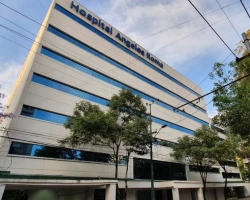
Mexico City, Mexico
Specializations: Cardiac surgery, Vascular surgery, Thoracic surgery, Neurosurgery, Spine surgery, Orthopedic surgery, Oncology
Languages: Spanish; Castilian
1
from Gaby Fabián
November 19, 2023
The attention from the nursing staff left much to be desired, it is supposed to be a first-class hospital for such poor service. Omission of analgesics, failure to follow instructions left in writing by the doctor. They ask about food preferences and allergies so they can ignore them. Violation of patients' rights, even though all staff have them attached to their chests on their identification. Not a cheap bill (>200k) for such bad service.
5
from Aketzally López
August 31, 2023
It is a very clean, beautiful hospital, obviously also in the area, the consultations are a little expensive, but they take great care of you. I fully recommend Doctor David Mazza 🫰🏼
5
from Eva Nemeth-Csoka
July 07, 2023
A modern, clean, well-located and very well-equipped hospital. The rooms are spacious, well-organized and the facilities are of excellent quality. Very large parking lot, the signs in the hallways are very clear, but the staff is also very friendly and helpful, they are happy to help you if you can't find something. At the entrance there is a Starbucks Coffee with fresh and tasty food and on the other side a grocery and drinks store. From the entrance there is a very nice view.
Prices for popular procedures:
-
Mechanical valve replacement
≈ $28,533
-
Bio-prosthetic valve replacement
≈ $26,265
-
Double valve replacement
≈ $22,809
-
Mitral valve replacement (MVR)
≈ $20,474
-
Dual chamber pacemaker insertion
≈ $7,800
-
Coronary artery bypass graft (CABG)
≈ $25,360
-
Heart valve replacement
≈ $2,692
-
Heart valve repair
≈ $22,998
-
Aortic valve replacement (AVR)
≈ $25,310
3.8
5 reviews
1
from Gaby Fabián
November 19, 2023
The attention from the nursing staff left much to be desired, it is supposed to be a first-class hospital for such poor service. Omission of analgesics, failure to follow instructions left in writing by the doctor. They ask about food preferences and allergies so they can ignore them. Violation of patients' rights, even though all staff have them attached to their chests on their identification. Not a cheap bill (>200k) for such bad service.
5
from Aketzally López
August 31, 2023
It is a very clean, beautiful hospital, obviously also in the area, the consultations are a little expensive, but they take great care of you. I fully recommend Doctor David Mazza 🫰🏼
5
from Eva Nemeth-Csoka
July 07, 2023
A modern, clean, well-located and very well-equipped hospital. The rooms are spacious, well-organized and the facilities are of excellent quality. Very large parking lot, the signs in the hallways are very clear, but the staff is also very friendly and helpful, they are happy to help you if you can't find something. At the entrance there is a Starbucks Coffee with fresh and tasty food and on the other side a grocery and drinks store. From the entrance there is a very nice view.

Puebla, Mexico
Specializations: Cardiac surgery, Vascular surgery, Thoracic surgery, Neurosurgery, Spine surgery, Orthopedic surgery, Oncology
1
from Ivan Salgado
September 28, 2023
I tried to set an appointment to see a surgeon. Front desk hang up on me cuz my spanish is not great.
5
from Leopoldo Arias
July 16, 2023
I put five stars just so everyone can see this Dr. Jorge Eugenio Valdez Garcia who works at el Zambrano hellion is doing research with an implant in my eye and he is harassing and threatening to have some one shoot me and has hired someone to stalk me and that person has been breaking in to my truck and has been stealing from me he is trying to scare me they grafted the implant in my eye without my consent and he has been doing research with my eye for several years now!
5
from Gloria Sanchez
January 03, 2023
Great service and awesome doctors, we visited Dr José Ángel Garza Cantu
Prices for popular procedures:
-
Balloon valvuloplasty
≈ $21,394
-
Percutaneous balloon mitral valvuloplasty (PBMV)
≈ $11,263
-
Open commissurotomy
≈ $12,337
-
Dual chamber pacemaker insertion
≈ $7,800
-
Coronary artery bypass graft (CABG)
≈ $25,360
-
Off-pump coronary artery bypass surgery
≈ $18,816
-
Permanent pacemaker implantation
≈ $7,963
-
Radiofrequency ablation (RFA)
≈ $15,008
-
Cardiac catheterization
≈ $2,411
4.1
5 reviews
1
from Ivan Salgado
September 28, 2023
I tried to set an appointment to see a surgeon. Front desk hang up on me cuz my spanish is not great.
5
from Leopoldo Arias
July 16, 2023
I put five stars just so everyone can see this Dr. Jorge Eugenio Valdez Garcia who works at el Zambrano hellion is doing research with an implant in my eye and he is harassing and threatening to have some one shoot me and has hired someone to stalk me and that person has been breaking in to my truck and has been stealing from me he is trying to scare me they grafted the implant in my eye without my consent and he has been doing research with my eye for several years now!
5
from Gloria Sanchez
January 03, 2023
Great service and awesome doctors, we visited Dr José Ángel Garza Cantu

San Pedro Garza Garcia, Mexico
Specializations: Cardiac surgery, Vascular surgery, Thoracic surgery, Neurosurgery, Spine surgery, Orthopedic surgery, Oncology
The Zambrano Hellion Hospital provides specialization and cutting-edge hospital care with a new level for health care, it has comprehensive programs and specialized centers in
read more
4
from Irma del Carmen García Almaguer
July 13, 2023
What a shame that in a Hospital like San José you cannot buy a catheter and emergency medicine at the Pharmacy. As a town pharmacy, it was closed at midday because the person in charge “went out to eat.” AND THERE WAS NO ONE TO ATTEND. And the people I asked saw everything as very logical… “he went out to eat and was probably late.” How little brains. A Pharmacy in a hospital in broad daylight must be open so it is a good idea to have another person stay to serve while someone else goes out to eat. It really took a long time and I had to go look somewhere else (CUAN) because the medicine and the tube were URGENT.
4
from flynn “the drummer” swanwick
October 24, 2021
woke up there after a slosh of a sesh, now missing my left nut, right kidney and both my big toes and pinky toes. i have no ballence now
5
from Tonnis Nieboer
November 23, 2018
Best hospital in the world!!
Prices for popular procedures:
-
Balloon valvuloplasty
≈ $21,394
-
Percutaneous balloon mitral valvuloplasty (PBMV)
≈ $11,263
-
Open commissurotomy
≈ $12,337
-
Dual chamber pacemaker insertion
≈ $7,800
-
Coronary artery bypass graft (CABG)
≈ $25,360
-
Off-pump coronary artery bypass surgery
≈ $18,816
-
Permanent pacemaker implantation
≈ $7,963
-
Radiofrequency ablation (RFA)
≈ $15,008
-
Cardiac catheterization
≈ $2,411
4.2
5 reviews
4
from Irma del Carmen García Almaguer
July 13, 2023
What a shame that in a Hospital like San José you cannot buy a catheter and emergency medicine at the Pharmacy. As a town pharmacy, it was closed at midday because the person in charge “went out to eat.” AND THERE WAS NO ONE TO ATTEND. And the people I asked saw everything as very logical… “he went out to eat and was probably late.” How little brains. A Pharmacy in a hospital in broad daylight must be open so it is a good idea to have another person stay to serve while someone else goes out to eat. It really took a long time and I had to go look somewhere else (CUAN) because the medicine and the tube were URGENT.
4
from flynn “the drummer” swanwick
October 24, 2021
woke up there after a slosh of a sesh, now missing my left nut, right kidney and both my big toes and pinky toes. i have no ballence now
5
from Tonnis Nieboer
November 23, 2018
Best hospital in the world!!
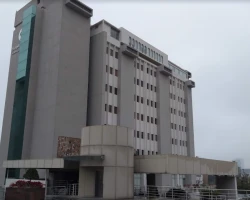
Mexico City, Mexico
Specializations: Cardiac surgery, Vascular surgery, Thoracic surgery, Neurosurgery, Spine surgery, Orthopedic surgery, Oncology
Hospital San José is the hospital committed to medical innovation, which integrates health professionals, pioneers and experts, dedicated to caring for health for more than
read more
4
from Happyrich
June 13, 2023
It seems to be the best among the many hospitals in Monterrey for health check-ups.
All hospitals are friendly...
I was satisfied with the most detailed check. I was able to see the doctor more comfortably than at other general hospitals.
The food in the last week was tastier than any other hospital.
5
from Mayra Rubalcava
April 08, 2022
Great hospital. Better service than some hospital in the US.
1
from Kelvin Newman
March 04, 2022
No good guadlupe mendodoza ,I no pay you
Prices for popular procedures:
-
Mechanical valve replacement
≈ $28,533
-
Bio-prosthetic valve replacement
≈ $26,265
-
Double valve replacement
≈ $22,809
-
Mitral valve replacement (MVR)
≈ $20,474
-
Open commissurotomy
≈ $12,337
-
Dual chamber pacemaker insertion
≈ $7,800
-
Coronary artery bypass graft (CABG)
≈ $25,360
-
Heart valve replacement
≈ $2,692
-
Heart valve repair
≈ $22,998
4.2
5 reviews
4
from Happyrich
June 13, 2023
It seems to be the best among the many hospitals in Monterrey for health check-ups.
All hospitals are friendly...
I was satisfied with the most detailed check. I was able to see the doctor more comfortably than at other general hospitals.
The food in the last week was tastier than any other hospital.
5
from Mayra Rubalcava
April 08, 2022
Great hospital. Better service than some hospital in the US.
1
from Kelvin Newman
March 04, 2022
No good guadlupe mendodoza ,I no pay you
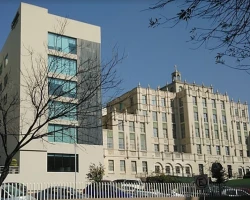
Monterrey, Mexico
Specializations: Cardiac surgery, Vascular surgery, Thoracic surgery, Neurosurgery, Spine surgery, Orthopedic surgery, Oncology
Languages: English
Since its foundation in 1934, Muguerza Hospital, today CHRISTUS MUGUERZA Hospital Alta Especialidad, has remained at the forefront of medicine in Nuevo León. 87 years
read more
3
from David Daniel Carreño Pérez
November 04, 2023
The place needs renovations
5
from Andrea Pabion-De Aliaga
November 15, 2022
There service is the best! I was admitted for a week there and they incredibly took care of me and if I gave it a rating it would be an absolute 5 star! Their food, my gosh it was delicious. I never imagine that they serve great quality of food with numerous options. The taste were not bland, it is well seasoned. I always look forward for every meal. heheh. Oh, and their rooms are so clean! They make sure that a cleaner visits my room twice a day to mop and clean the toilet and they remove the trash. And finally, the Nurses are very kind, caring and gentle.. They check up on you multiple times a day/night and responds quickly if you call them.
5
from JagadesH Lakshmanan
July 18, 2021
They have provided a very good service
Prices for popular procedures:
-
Mechanical valve replacement
≈ $28,533
-
Bio-prosthetic valve replacement
≈ $26,265
-
Double valve replacement
≈ $22,809
-
Mitral valve replacement (MVR)
≈ $20,474
-
Open commissurotomy
≈ $12,337
-
Heart valve replacement
$2,692
-
Heart valve repair
≈ $22,998
-
Aortic valve replacement (AVR)
≈ $25,310
-
Transcatheter aortic valve replacement (TAVR)
≈ $36,866
4.0
5 reviews
3
from David Daniel Carreño Pérez
November 04, 2023
The place needs renovations
5
from Andrea Pabion-De Aliaga
November 15, 2022
There service is the best! I was admitted for a week there and they incredibly took care of me and if I gave it a rating it would be an absolute 5 star! Their food, my gosh it was delicious. I never imagine that they serve great quality of food with numerous options. The taste were not bland, it is well seasoned. I always look forward for every meal. heheh. Oh, and their rooms are so clean! They make sure that a cleaner visits my room twice a day to mop and clean the toilet and they remove the trash. And finally, the Nurses are very kind, caring and gentle.. They check up on you multiple times a day/night and responds quickly if you call them.
5
from JagadesH Lakshmanan
July 18, 2021
They have provided a very good service
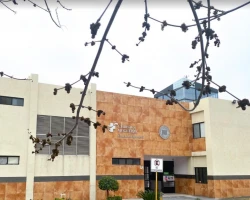
Monterrey, Mexico
Specializations: Cardiac surgery, Vascular surgery, Thoracic surgery, Neurosurgery, Spine surgery, Orthopedic surgery, Oncology
Languages: English
For more than 8 decades, at CHRISTUS MUGUERZA Hospital Conchita we have distinguished ourselves in serving Monterrey families with a service of high human warmth
read more
5
from Paola Hernandez
September 22, 2023
Good attention
5
from Jazmani Ochoa
December 02, 2022
They take good care of patients, they are treated as they should be. The facilities are well maintained. The parking lot is ample.
2
from Sandy Alcocer
October 15, 2021
Madhouse, worst service at ER
Prices for popular procedures:
-
Mechanical valve replacement
≈ $28,533
-
Bio-prosthetic valve replacement
≈ $26,265
-
Double valve replacement
≈ $22,809
-
Mitral valve replacement (MVR)
≈ $20,474
-
Balloon valvuloplasty
≈ $21,394
-
Percutaneous balloon mitral valvuloplasty (PBMV)
≈ $11,263
-
Open commissurotomy
≈ $12,337
-
Dual chamber pacemaker insertion
≈ $7,800
-
Coronary artery bypass graft (CABG)
≈ $25,360
4.0
5 reviews
5
from Paola Hernandez
September 22, 2023
Good attention
5
from Jazmani Ochoa
December 02, 2022
They take good care of patients, they are treated as they should be. The facilities are well maintained. The parking lot is ample.
2
from Sandy Alcocer
October 15, 2021
Madhouse, worst service at ER
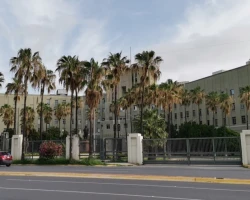
Monterrey, Mexico
Specializations: Cardiac surgery, Vascular surgery, Thoracic surgery, Neurosurgery, Spine surgery, Orthopedic surgery, Oncology
We are a Hospital Institution at the service of society, belonging to the Faculty of Medicine of the Autonomous University of Nuevo León; through which
read more
1
from Azadi S
June 16, 2023
Please remove Cynthia Solís (plastic) from this hospital. My family and I were her patients and she almost killed one of us. She is ignorant, an extreme danger to patients and commits medical malpractice for which she is currently under investigation.
5
from Mike Thomas
April 14, 2023
My second time here in the past month…this is one of the best Hospitals I’ve ever been in. Excellent staff, World class service. No problems whatsoever like the other reviews.
Blue Cross insurance was accepted and I was taken care of around the clock. HIGHLY RECOMMENDED.
1
from Marco Cruz
November 08, 2022
Went in to get an abscess removed on three different visits. I was scheduled at 10am but the room wasn't available until 8pm. Told to wait. I luckily asked for a written cost estimate and was told 58,000 PESOS (not including blood work, ultrasound and "hospital fees"). I said "no" and before I left, I paid the receptionist the 2,000 peso consult fee which she strangely handed over to one of the doctors. I never got a receipt for the two times that I paid. I went down the street and had the abscess removed for 2,000 pesos. BE SURE TO GET A WRITTEN COST ESTIMATE BEFORE ANY PROCEDURE. GO ELSEWHERE- THIS PLACE IS A RIP OFF! 30x more than the competition. Shady billing, accounting, payment, no receipts and handing cash to doctors?
Prices for popular procedures:
-
Balloon valvuloplasty
≈ $21,394
-
Percutaneous balloon mitral valvuloplasty (PBMV)
≈ $11,263
-
Coronary artery bypass graft (CABG)
≈ $25,360
-
Off-pump coronary artery bypass surgery
≈ $18,816
-
Cardiac catheterization
≈ $2,411
-
Percutaneous ASD closure
≈ $9,977
-
Percutaneous closure of ventricular septal defect (VSD)
≈ $10,266
-
Coronary catheterization
≈ $1,814
-
Percutaneous coronary intervention (PCI) with stent insertion
≈ $7,981
4.0
5 reviews
1
from Azadi S
June 16, 2023
Please remove Cynthia Solís (plastic) from this hospital. My family and I were her patients and she almost killed one of us. She is ignorant, an extreme danger to patients and commits medical malpractice for which she is currently under investigation.
5
from Mike Thomas
April 14, 2023
My second time here in the past month…this is one of the best Hospitals I’ve ever been in. Excellent staff, World class service. No problems whatsoever like the other reviews.
Blue Cross insurance was accepted and I was taken care of around the clock. HIGHLY RECOMMENDED.
1
from Marco Cruz
November 08, 2022
Went in to get an abscess removed on three different visits. I was scheduled at 10am but the room wasn't available until 8pm. Told to wait. I luckily asked for a written cost estimate and was told 58,000 PESOS (not including blood work, ultrasound and "hospital fees"). I said "no" and before I left, I paid the receptionist the 2,000 peso consult fee which she strangely handed over to one of the doctors. I never got a receipt for the two times that I paid. I went down the street and had the abscess removed for 2,000 pesos. BE SURE TO GET A WRITTEN COST ESTIMATE BEFORE ANY PROCEDURE. GO ELSEWHERE- THIS PLACE IS A RIP OFF! 30x more than the competition. Shady billing, accounting, payment, no receipts and handing cash to doctors?
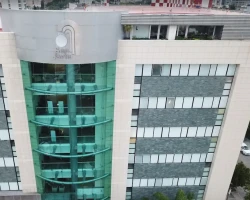
Guadalajara, Mexico
Specializations: Cardiac surgery, Vascular surgery, Thoracic surgery, Neurosurgery, Spine surgery, Orthopedic surgery, Oncology
Taking specific medical-hospital service needs into account in Guadalajara and in the West of Mexico, Grupo Empresarial San Javier (Corporate Group), formed by a group
read more
Clinics grouping by rating
Clinic with the highest rating of 4.5 — Excel Hospital in Tijuana, Mexico, clinic with the most reviews number of 1548 — Hospital General de México Dr. Eduardo Liceaga in Mexico City, Mexico.
With rating 4.0 and over — 12 clinics .
Countries with the highest number of clinics treating the diseases:
Mitral valve stenosis:
worldwide
580 clinics
India
39 clinics
Brazil
32 clinics
Germany
29 clinics
Turkey
29 clinics
Colombia
26 clinics
Related procedures:
Procedures are likely to be used for Mitral valve stenosis treatment:
Balloon valvuloplasty,
Bio-prosthetic valve replacement,
Double valve replacement,
Mechanical valve replacement,
and
Mitral valve replacement (MVR)
.
Quick navigation
Procedures
Diseases
- Balloon angioplasty and stenting of aorta coarctation $9,820 - $9,820
- Cardiac catheterization $2,411 - $2,411
- Coarctectomy in children $12,526 - $12,526
- Coil embolization of intracardiac shunts and fistulas $4,533 - $4,533
- Extracorporeal membrane oxygenation (ECMO) by request
- Heart tumor surgery $14,863 - $14,863
- Intraaortic balloon pump (IABP) procedure $2,703 - $2,703
- Left atrial appendage occlusion $9,900 - $9,900
- MAZE procedure $13,925 - $13,925
- Minimally invasive valvular heart surgery with valve repair or replacement by request
- NobleStitch™ PFO closure procedure by request
- Open-heart intracardiac foreign body removal $17,754 - $17,754
- Patent ductus arteriosus (PDA) open heart surgery in adults $5,930 - $5,930
- Percutaneous ASD closure $9,977 - $9,977
- Percutaneous closure of ventricular septal defect (VSD) $10,266 - $10,266
- Rashkind procedure $8,514 - $8,514
- Surgery for tetralogy of Fallot (TOF) in adults $10,339 - $10,339
- Surgical ventricular restoration (SVR) $14,127 - $14,127
- Transcatheter closure of patent ductus arteriosus (PDA) in adults $8,604 - $8,604
- Ventricular septal defect (VSD) repair $16,958 - $16,958
- Aortic valve insufficiency
- Aortic valve stenosis
- Atrial fibrillation (AFib)
- Coarctation of the aorta (CoA)
- Foreign bodies in the heart
- Heart failure
- Heart tumor
- Heart valve disease
- Mitral valve insufficiency
- Mitral valve stenosis
- Multivalvular disease
- Myocardial infarction (MI)
- Pneumonia
- Pulmonary hypertension
- Sinus of valsalva aneurysm (SOVA)
- Tricuspid valve insufficiency
- Tricuspid valve stenosis
- Valvular insufficiency
- Ventricular aneurysm
- Ventricular septal rupture (VSR)

